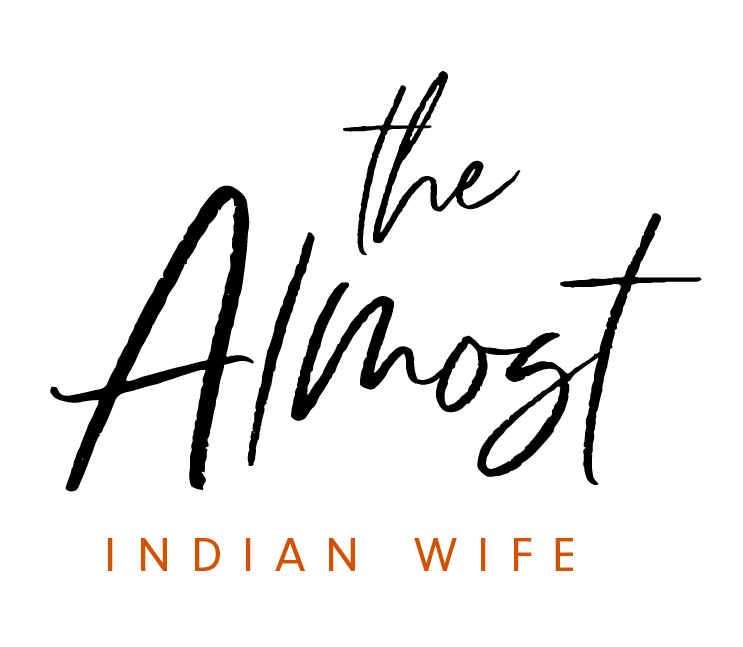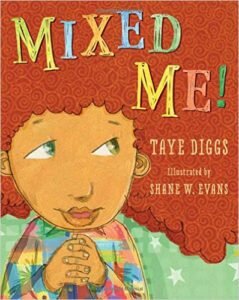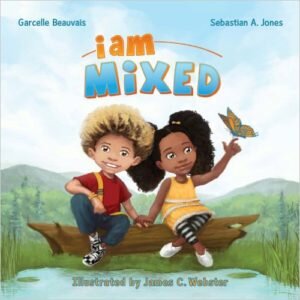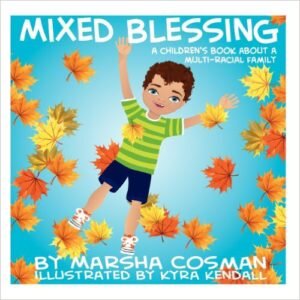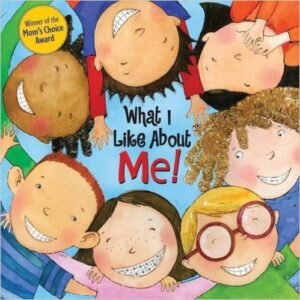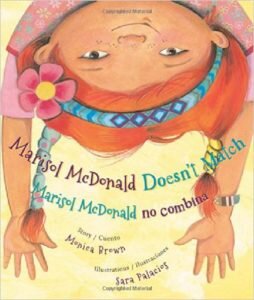Do Kids Belong At A Meat Shop
 Over the last eight years that my husband and I have been married, we've faced quite a few culture shock moments. Most of them happen when we least expect it. We just go about our day and then we find ourselves doing something we've done for years, only to see the look on our spouses face.Complete and utter shock.Or it's the other way around and we look at them wondering how in the world they don't realize how crazy it is.It gets even crazier when you have kids.About a year ago, my husband and I headed to our local Indian grocery store. We had planned out a few Indian dishes for the week and knew we needed to pick up spices and some fresh meat.We have taken our kids to this Indian grocery store dozens of times... Usually the Aunty or Uncle that works there gives them a sucker and they always try to find the good cookies.I knew they had fresh meat at this one, but I didn't realize how fresh.We went through the store and grabbed all of the groceries we needed and saved the meat for last. We walked to the meat section and I noticed they had a lot of pre-cut meat right up front. I assumed we'd pick from the meat in the fridge. My husband started talking to the guy about different cuts of meat and decided to order half a goat. The man then preceded to walk into the back room.
Over the last eight years that my husband and I have been married, we've faced quite a few culture shock moments. Most of them happen when we least expect it. We just go about our day and then we find ourselves doing something we've done for years, only to see the look on our spouses face.Complete and utter shock.Or it's the other way around and we look at them wondering how in the world they don't realize how crazy it is.It gets even crazier when you have kids.About a year ago, my husband and I headed to our local Indian grocery store. We had planned out a few Indian dishes for the week and knew we needed to pick up spices and some fresh meat.We have taken our kids to this Indian grocery store dozens of times... Usually the Aunty or Uncle that works there gives them a sucker and they always try to find the good cookies.I knew they had fresh meat at this one, but I didn't realize how fresh.We went through the store and grabbed all of the groceries we needed and saved the meat for last. We walked to the meat section and I noticed they had a lot of pre-cut meat right up front. I assumed we'd pick from the meat in the fridge. My husband started talking to the guy about different cuts of meat and decided to order half a goat. The man then preceded to walk into the back room.
He walked back out carrying a goat over his shoulder.
Dead.Skinned.Baby Goat.My four year old instantly asked him, what's that? The man smiled and said it's a goat. Do you see his head? Want to watch me cut him up?
WHAT?
All I wanted to do was yell at this guy that just traumatized my four year old.Why in the world would you joke around with a toddler about a dead animal?! Right as I was about to make the biggest scene this guy has probably ever seen, I stopped and realized this was normal for him. He probably sees families come in all the time, children in their arms, watching this process happen.My husband even told me a story of him and his siblings in India. Him and his family had gone to Hyderabad for the summer. All week long, his younger brother and sister were playing with a goat. They had named it and started to treat it as a pet. One morning, they woke up to see it hanging on a tree behind their bungalow.An Aunty and Uncle were preparing it for dinner.As much of a shock as that was to them, they realized early on the reality of having animals in India.I watched my son the entire time. I was glued to his reactions to see if I needed to cover his eyes and run out of the store at any moment. Surprisingly, he was fine. While I was cringing at every moment, he was curious and then distracted by the cookies in the aisle next to us.This was one of those moments that was completely acceptable in Indian culture and a huge shock in American culture.He still goes with my husband to the Indian grocery store all the time and he still has just as many questions when he goes. The big thing I had to remember was just because this was something new to me, didn't necessarily mean it was a bad thing.I'll admit though... I still hesitantly watch their reactions the whole time!
Have you ever experienced culture shock?
What's Expected Of A Foreign Daughter In Law?
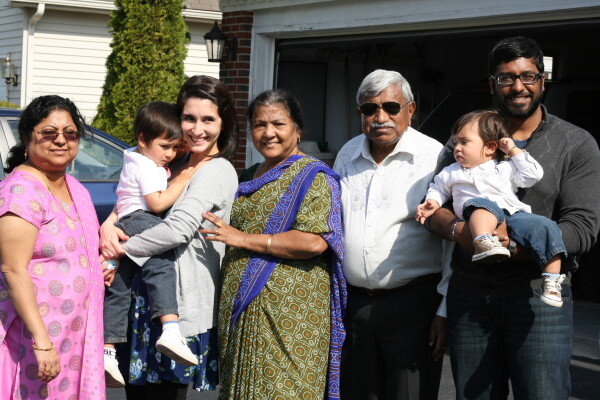
Does marrying into a foreign culture mean you are now expected to behave according to your new cultures rules?
This has come up for me in different ways. I’ve mentioned before, I grew up in a family with a single, mom. I was taught to be a strong, independent, and outspoken person. However, the culture I have married into expects humility, submission to leadership, and listening and trusting your elders. There’s not much room for outspoken remarks in there.When I first married my husband, I was very vocal to him. I told him that we are married, starting our own family, but he has to remember, I’m not Indian. He used to laugh.
Yes, hon. I think your white skin was a bit of a give away for me.
I could see some of the cultural differences from the beginning of our relationship. It all started my first Thanksgiving with his family. I was so interested and observed all weekend. I noticed everyone was called by Indian names (Ukka, Mama, Pinni, Ummamma), everyone was extremely close to each other, everyone ate Indian food with their hands, and all of the kids submissively obeyed their elders (even as adults).My husband and I have always wanted to bring Indian culture into our family. So, I tried to find out what was going to be expected of me as a foreign daughter in law. I wanted to be a good daughter in law, but I also didn’t want to be held to every Indian standard there was. In my head, I thought I'd be changing myself if I agreed to be held to all Indian standards.The longer I've been a foreign daughter in law, the more I’m realizing it’s not possible to truly bring Indian culture into our family without being held to some Indian standards.I have responsibilities as the oldest daughter (in law) in the family, as a mother of biracial children, as a wife, as a foreign daughter in law, and as an Akka (big sister).I've learned to love some of these expectations. I love that my husband and I have been able to be there for my brother and sister in law. I love being able to give advice to all of the cousins in the family. I love having family live with us for extended periods of time.Along with so many expectations I love, there are also some that I still struggle with. As an outspoken person, I have the hardest time listening without sharing my opinion. I’ve learned how disrespectful it can be in Indian culture to openly disagree with an elder. In my family, we all share our opinions and often leave it at, let’s agree to disagree. I’ve never seen that as disrespectful. I love that my family shares our opinions with each other. Even if we don’t follow what someone says, I love that we can challenge each other.Submissive obedience in Indian families means an elder tells you to do something and you do it, simple as that. I finally asked someone for advice on this.
Will I lose myself if I agree to submissive obedience?
She asked how I’d lose myself. How could I be myself, without sharing what I thought? What if I disagreed? What if I agreed, but I still want to share what I thought?The more questions I asked myself, the more I realized there's no way to lose myself by listening to someone who loves my family and is trying to help us. I have only been a parent for five years. I have so much to learn. If anything, I’m letting my pride prevent me from accepting help.When elders in our family tell me to do something, I’ve learned to be open. Obviously, I’m so far from perfect in this area. I know my pride will continue to rear it’s ugly head again and again. However, I want to teach my kids to listen to their elders as well. The best way to teach them this is to show them, even adults listen to their elders.This doesn’t mean I don’t have a voice in our family. That is the biggest idea that I struggle with. The western culture in my head says obeying as an adult means I’m being stifled and not respected. In reality it means someone loves us enough, they are trying to help us by giving us advice and trying to make our lives easier.There are the times where I am told to do something with my children and I don’t agree.
What do I do? I thank them for the advice and then my husband and I decide together.
At the end of the day, my husband and I will do what we think is best for our family. However, I am actively trying to quiet my pride so I can be open to what our family members have to offer as advice and wisdom.As a foreign daughter in law, the standards are different. Some may expect me to follow every Indian standard and others won’t hold me to any. My husband and I talk about which standards I feel comfortable holding myself to. The biggest thing I ask myself is what can I teach my child if I follow a certain standard. If I think it holds value to them, I try to follow it. If it’s not something I want to teach them, I don’t.
You won’t ever be able to please everyone. All you can do is what’s best for your family. You and your spouse chose together what you will do as a family.
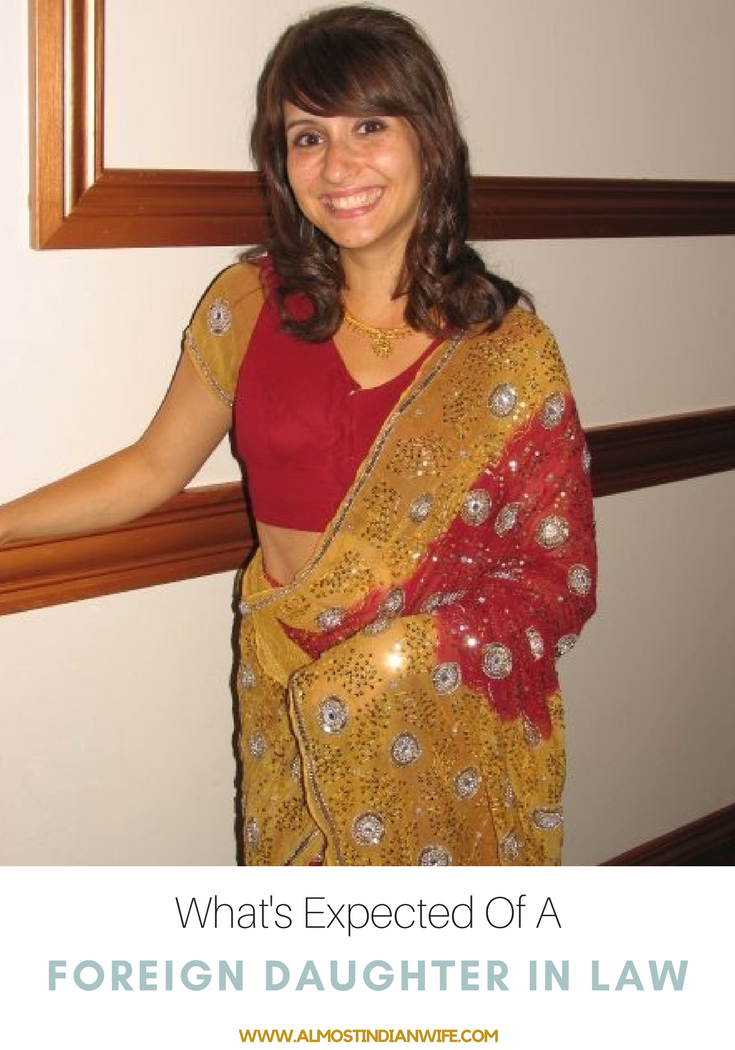
Mistakes Interracial Couples Are Making
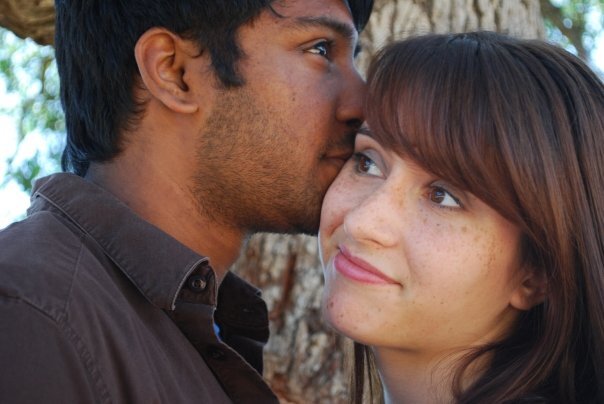
Mistakes Interracial Couples Are Making
There are a lot of things interracial couples have to do. They're constantly trying to figure out how to blend everything from taste preferences to family traditions. However, they're also doing a few things wrong.
Trying To Figure Everything Out On Their Own.
We've all heard the saying, "Relationships require open lines of communication." However, it's one thing most relationships lack. Over time, you start to talk less and either assume your partner knows what you're thinking or figure it's easier to do it all on your own.I'm definitely one that likes to do things on my own. I grew up with an independent single mom and my first instinct is to take care of myself. I've had to really learn over the years, to depend on and communicate with my husband.Communication is vital in interracial relationships. They have all the same things that typical couples have to face as well as all the challenges that come with blending cultures and expectations. It's important for them both to talk about how they feel along the way and to check in with each other frequently.
Assuming Expectations Are Universal.
Anyone in an interracial relationship will tell you just how different expectations are in different cultures. While you may think you're being hospitable and gracious, you in-law may think you're actually being rude and offensive.You may get lucky and have some expectations that are universal, but for the most part, they're not. Interracial couples have to talk about what's expected of each other in different situations. It's up to both of them to decide if they'll follow the expectations, in the end, but understanding what they are is key.
Getting Caught Up In The Drama.
It's easy to get caught up in the stress of blending cultures and trying to follow the expectations that have been placed on your shoulders. You start to forget why you fell for each other, to begin with, because your relationship becomes all about stress.You have to find a way to separate it all. You fell for your partner because you loved them. If you can stand strong as a couple, you can face the rest of it together. Even though it can be overwhelming at times, think of it as something to help you get closer together.
Forgetting What Culture Really Means.
Somehow the term "culture" has been mistranslated by many interracial couples. They assume one of them has more culture than the other because their partner grew up in India or some other part of the world. Then their relationship becomes all about blending their culture into the relationship rather than blending both cultures into their family.Culture is a person's beliefs, how they were raised based on where the lived or their ethnic background, their ideas, and how they behave.We all have a unique culture that sets us apart from everyone else. Interracial couples have to remember to blend both cultures into their family.
Not Laughing.
Interracial couples face a lot. It may be in the form of discrimination, stereotypical jokes, stress, or crazy comments from ignorant people. At the end of the day, they all have a choice. They can let it make them bitter or they can just laugh.Sometimes laughter is the best medicine.You can't control how other people are, but you can control your own response. Don't let other people come in make you feel like your relationship is a burden or stress you out.Instead, just laugh. Laugh because you knew you are completely in love with your partner and that is all that matters.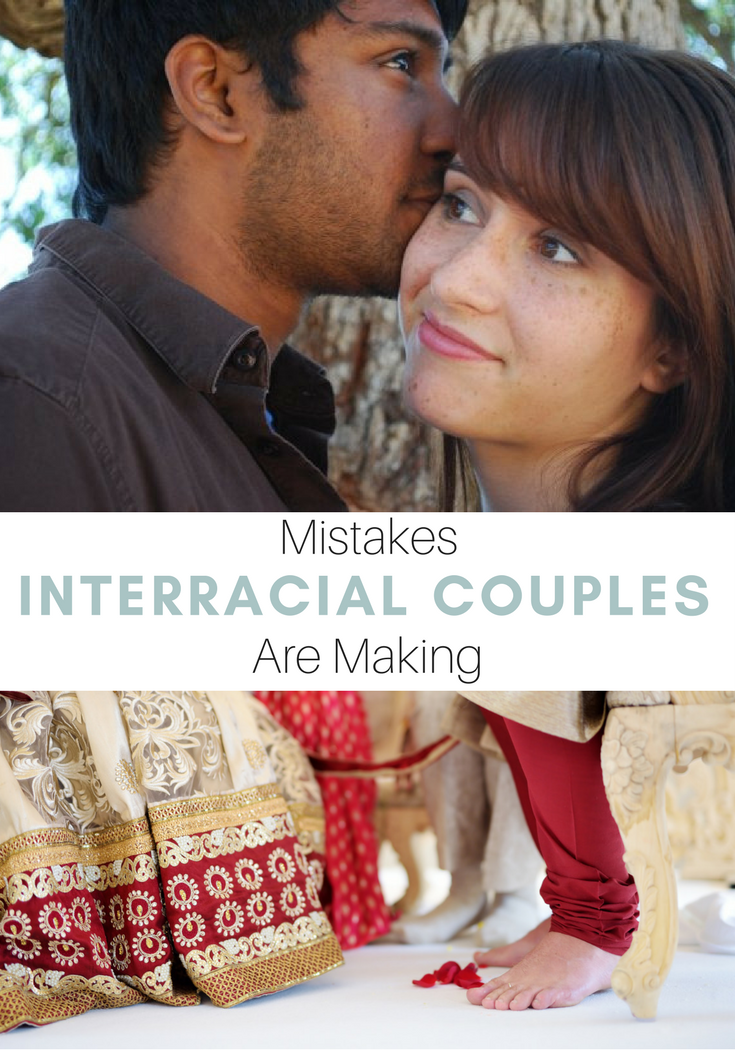
The Question Interracial Couples Secretly Ask Themselves
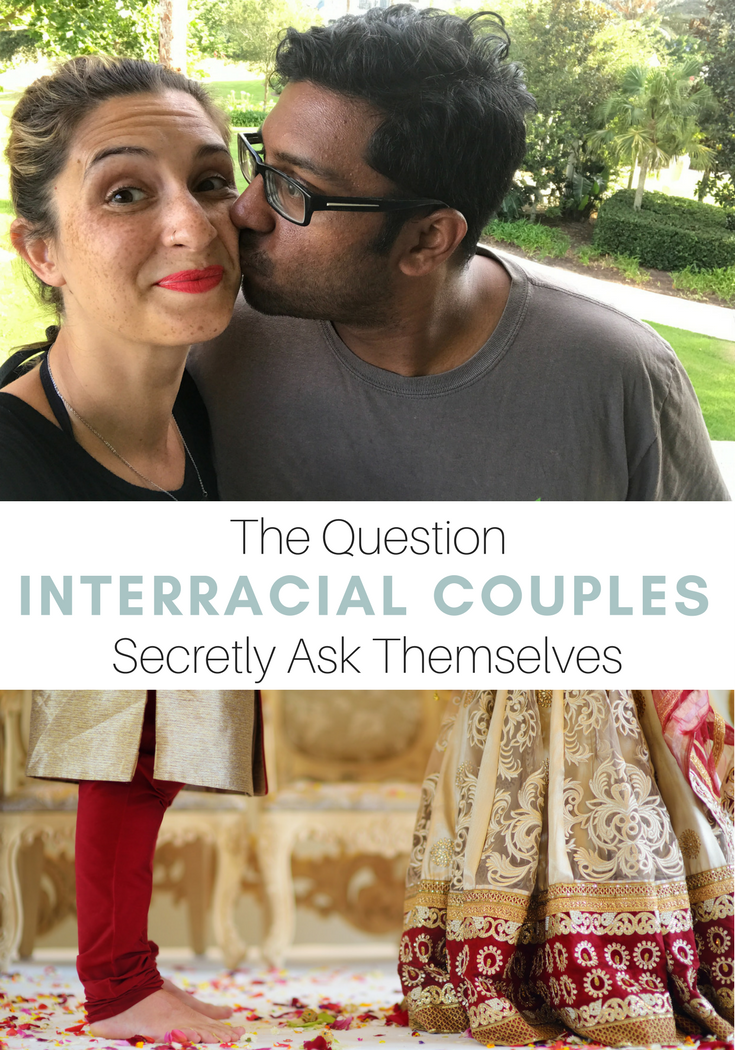 My husband and I are about to celebrate our 8th wedding anniversary. While it's gone by fast, it wouldn't have been possible with a lot of hard work.Every couple that has survived past the new relationship stage knows how hard a relationship can be. If you want it to work you have to grow together, forgive daily, and strive to be the best person you can be.What about interracial couples?While every couple faces challenges, interracial couples are in a whole new ballpark.In addition to meeting the in-laws, you have to be aware of all the different cultural expectations.You don't just have to figure out how to live together, you have to figure out how to blend cultures in your home.There's a unique edge to just about everything in your relationship. At the end of the day, just like other couples, you have to put in the hard work. You'll have different seasons throughout your relationship. The wonderful seasons will help get you through the rough seasons.Your love for each other trumps anything you will go through together.
My husband and I are about to celebrate our 8th wedding anniversary. While it's gone by fast, it wouldn't have been possible with a lot of hard work.Every couple that has survived past the new relationship stage knows how hard a relationship can be. If you want it to work you have to grow together, forgive daily, and strive to be the best person you can be.What about interracial couples?While every couple faces challenges, interracial couples are in a whole new ballpark.In addition to meeting the in-laws, you have to be aware of all the different cultural expectations.You don't just have to figure out how to live together, you have to figure out how to blend cultures in your home.There's a unique edge to just about everything in your relationship. At the end of the day, just like other couples, you have to put in the hard work. You'll have different seasons throughout your relationship. The wonderful seasons will help get you through the rough seasons.Your love for each other trumps anything you will go through together. However, if we're being honest... there's a question we've all asked ourselves at some point in our interracial relationship. A question we may even be embarrassed to admit.Would it have been easier if I didn't choose an interracial relationship?If we're going to sit here and be frank with each other, the answer is most likely yes.Blending cultural expectations, lifestyles, and beliefs can be overwhelming at times. It's also work that other couples don't necessarily have to put in daily like we do.While both people in the relationship could ask themselves this question, the thing to remember is that culture is one of the reasons you love your partner.When my husband and I started falling for each other, the fact that we had different cultures didn't cross our minds. In fact, I really didn't think about it until I met his family for the first time. Then I was able to see a beautiful culture and family that had helped my husband to be the person he is today.We can all look back on our stories and ask if we could have made it easier on ourselves somehow. Hindsight is 20/20 so yes. We could go back in time and save ourselves a lot of heartaches, but we've grown from every one of them.My interracial relationship has taught me to communicate with my husband, be open to the world around me, and to love hard.I wouldn't change the life I have today with him, even if it meant things could be a little easier. It's the intricate part of our family that makes my life so exciting.What has your interracial relationship taught you?
However, if we're being honest... there's a question we've all asked ourselves at some point in our interracial relationship. A question we may even be embarrassed to admit.Would it have been easier if I didn't choose an interracial relationship?If we're going to sit here and be frank with each other, the answer is most likely yes.Blending cultural expectations, lifestyles, and beliefs can be overwhelming at times. It's also work that other couples don't necessarily have to put in daily like we do.While both people in the relationship could ask themselves this question, the thing to remember is that culture is one of the reasons you love your partner.When my husband and I started falling for each other, the fact that we had different cultures didn't cross our minds. In fact, I really didn't think about it until I met his family for the first time. Then I was able to see a beautiful culture and family that had helped my husband to be the person he is today.We can all look back on our stories and ask if we could have made it easier on ourselves somehow. Hindsight is 20/20 so yes. We could go back in time and save ourselves a lot of heartaches, but we've grown from every one of them.My interracial relationship has taught me to communicate with my husband, be open to the world around me, and to love hard.I wouldn't change the life I have today with him, even if it meant things could be a little easier. It's the intricate part of our family that makes my life so exciting.What has your interracial relationship taught you?
How To Survive A Long Distance Relationship
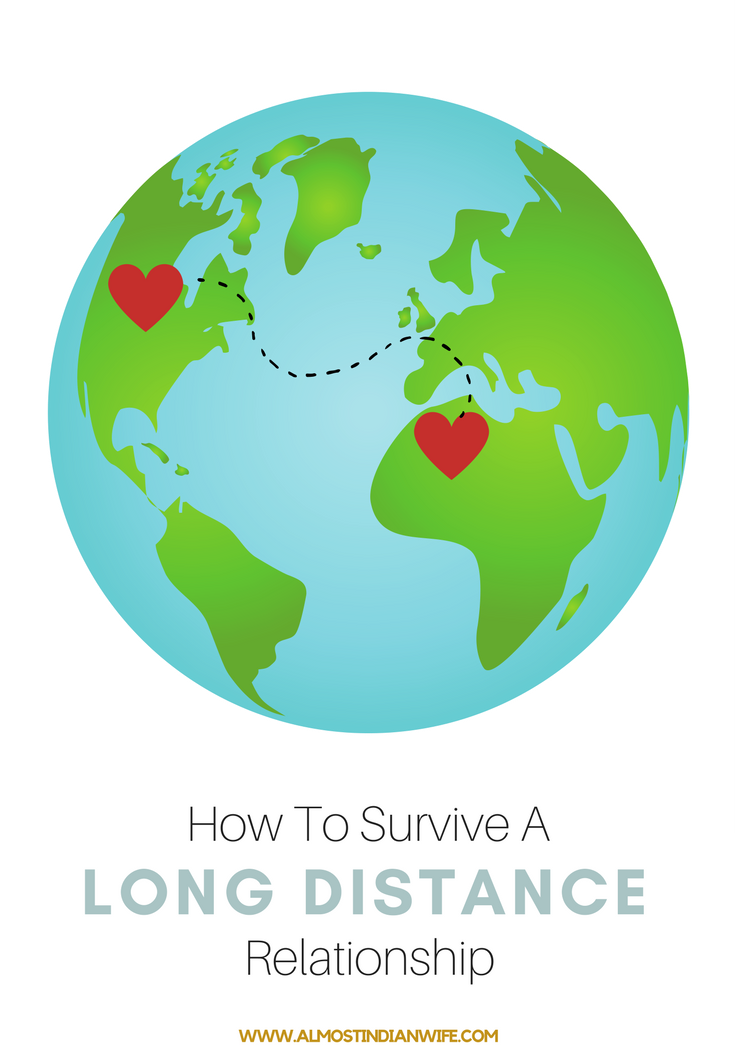 Nothing can beat the feelings you have when you first fall in love with your partner. Everything's new and you start to realize what true love really feels like. You wonder how you ever survived without this person in your life and start to picture your lives together.Then you wake up one morning and realize you've ended up in a long distance relationship.Long distance relationships are no secret to interracial couples. Many of us have fallen in love across states and different countries. The distance seems scary at first, but we want to make it work. We know we found the person we want to spend the rest of our lives with and we want to fight for it.The love you have for each other can conquer the distance between you.I'm not going to sugar coat anything for you today. It's hard. Relationships on their own require hard work, but add in a few hundred miles in between you and it's catapulted into a new level of chaos.I've been asking couples in my Multiracial Motherhood Facebook Group for some advice. I wanted to hear from all of them and find out how they made their long distance relationship work. Here are the tips they wanted to share with all of you!
Nothing can beat the feelings you have when you first fall in love with your partner. Everything's new and you start to realize what true love really feels like. You wonder how you ever survived without this person in your life and start to picture your lives together.Then you wake up one morning and realize you've ended up in a long distance relationship.Long distance relationships are no secret to interracial couples. Many of us have fallen in love across states and different countries. The distance seems scary at first, but we want to make it work. We know we found the person we want to spend the rest of our lives with and we want to fight for it.The love you have for each other can conquer the distance between you.I'm not going to sugar coat anything for you today. It's hard. Relationships on their own require hard work, but add in a few hundred miles in between you and it's catapulted into a new level of chaos.I've been asking couples in my Multiracial Motherhood Facebook Group for some advice. I wanted to hear from all of them and find out how they made their long distance relationship work. Here are the tips they wanted to share with all of you!
Talk Regularly
Schedule Date Nights
Send Each Other Care Packages
Remember To Talk About The Little Things
Have Fun Together
Don't Keep Score
Trust Each Other
Start Your Day By Saying Good Morning And End It With Goodnight
Try To Keep Your Times Together Simple
Let Yourself Feel All The Emotions
Make Trips Happen
Prepare Yourself For Criticism
Stay Positive
Multiracial Family Guide: Hosting Your In-Laws
 As a new couple, one of the scariest moments is having your in-laws over to your house for the first time. Most likely, you've already met them before, but it was on their turf. Now you're welcoming them into your own home.Your natural habitat.The place you can relax and be the raw, unfiltered you. You know the place you eat take out directly out of the container. The place you walk around without a bra because they're all dirty. The place you don't bother keeping spick and span because you're too busy.The place you're terrified to let your in-laws into.Before you start hyperventilating, take a deep breath. It doesn't have to be as bad as you're imagining in your head.In reality, having them over to your house can be easier. You're the most comfortable at home, so it can help with your nerves. Not to mention, you are in control of your environment. You can tidy up, hide the Game of Thrones contraband, and set out a vase of flowers.The scariest part is not knowing exactly what they're expecting when they arrive. As an interracial couple, you know things will be a bit different and you'll have to figure out what is culturally expected as the host.This is one of the things I've struggled with over the years. When I have people over to my house, I do what I was raised to do. I do what my family taught me was expected as the host, but over the years I've learned just how different it can be in different cultures.I finally sat down with my mother in law and simply asked her.What should I do as the host when Indian family members come to visit?
As a new couple, one of the scariest moments is having your in-laws over to your house for the first time. Most likely, you've already met them before, but it was on their turf. Now you're welcoming them into your own home.Your natural habitat.The place you can relax and be the raw, unfiltered you. You know the place you eat take out directly out of the container. The place you walk around without a bra because they're all dirty. The place you don't bother keeping spick and span because you're too busy.The place you're terrified to let your in-laws into.Before you start hyperventilating, take a deep breath. It doesn't have to be as bad as you're imagining in your head.In reality, having them over to your house can be easier. You're the most comfortable at home, so it can help with your nerves. Not to mention, you are in control of your environment. You can tidy up, hide the Game of Thrones contraband, and set out a vase of flowers.The scariest part is not knowing exactly what they're expecting when they arrive. As an interracial couple, you know things will be a bit different and you'll have to figure out what is culturally expected as the host.This is one of the things I've struggled with over the years. When I have people over to my house, I do what I was raised to do. I do what my family taught me was expected as the host, but over the years I've learned just how different it can be in different cultures.I finally sat down with my mother in law and simply asked her.What should I do as the host when Indian family members come to visit?
Everything Starts With A Cup Of Chai
Chai can make everything better. Truly. Somehow it has a magical effect when people enjoy it together.Whip up a batch of masala chai before your guests arrive. After they walk in the door and the greetings are finished, offer everyone a cup.This is going to give you huge Indian points with your family. You're showing them that you're going out of your way to bring them a little comfort from their own home.Try this simple masala chai recipe for your guests.
Food Is Your Best Friend
When you get your Indian relatives together, they're expecting food. I used to try and do little appetizers or plan to go out and get food soon after, but it's not the same. They want Indian food. Who doesn't? I can't even blame them because Indian food is delicious and it's a great way to bring people together.It doesn't matter if they're coming at lunch, in between lunch and dinner, or late at night... Prepare a few Indian dishes for them. Worse case scenario they say no thank you and you reheat it for the next meal.It means a lot to them when they see all the hard work you put in for them.You could prepare a simple keema curry, almond chicken curry, or even my favorite pav bhaji. Serve it with a big plate of rice and you're ahead of the game.
Shower Them With Gifts
If this is your first time meeting your in-laws, get them a gift. It doesn't have to be anything huge, but gifts are expected. They may not ever tell you this, but it's an unwritten rule in Indian families.You could get them a little container of loose leaf tea, a scarf, a piece of jewelry, or truly anything. It's not the cost that matters, it's the thought.
Be Yourself
At the end of the day, be yourself. The reason you're meeting your in-laws or hosting them at your house is that your partner loves you. They love you so much they want to bring you into their family.All you have to do is be yourself.Share about your first time hosting the in-laws in the comments!
How To Get My Family More Comfortable With Our Family's Mixed Culture

Sometimes the idea of getting the whole family together can get a little stressful, especially if it means the in laws come along too. It's one thing when you spend time with everyone on their own terms, but it's another thing entirely when they're out of their comfort zones.After my husband and I had our boys, it all seemed easier. Most of our family events were focused on our kids and it helped our families to have something in common. They all loved our boys to pieces and it made them more comfortable in that environment.We did learn a few things through our first few get togethers. Most of what we learned was through trial and error, but at the end of the day these three things helped a lot!Include Your Family's Traditions At Special EventsFind opportunities to include your family in traditions during your parties. Every family has their own traditions for special events and they're the perfect way to include everyone.We found a fun way to include both of our families traditions during our kid's birthday parties.Growing up my family used to do smash cakes. They would make a cake for the guests and then a little cake for the birthday kid. The best part of the smash cake is watching the little ones dig into it! Some of our kids were more aggressive with it than their siblings, but it was always fun.In my husband's family, they hand feed each other during special events. It's a special moment for family members to love on the child.My husband and I decided to combine the two traditions. We made a smash cake for our birthday boy, but had our family members feed him a bit of the cake before they could dig in.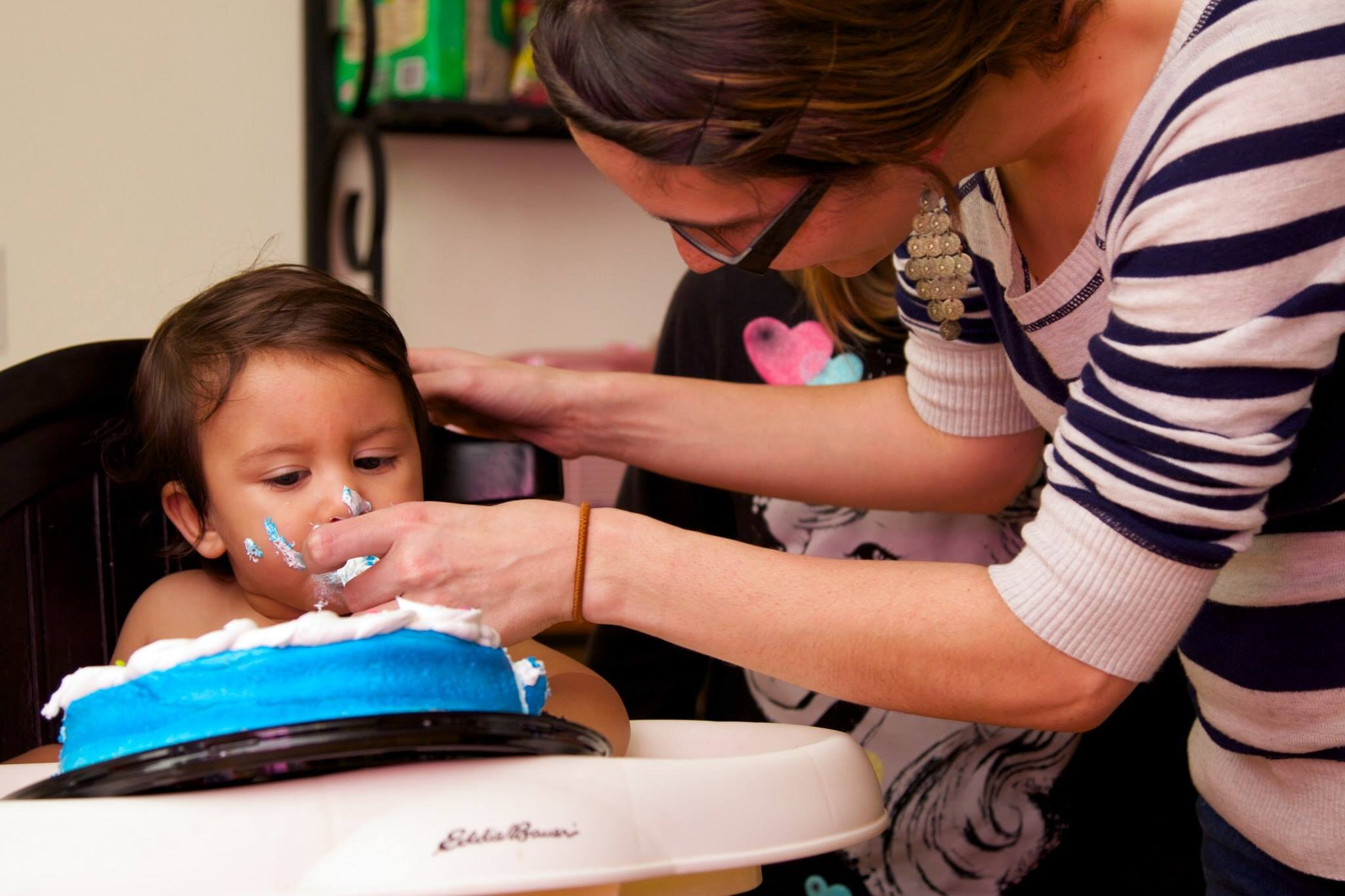 Let Your Family Know What To ExpectOne of the biggest things that leads to fear is the unknown. We fear things because we don't understand them. This is why it's so important for us to talk to our families about what they can expect as we blend cultures.During the week of my wedding mine and my husband's family got together. I don't know who was more nervous... me or them.My family had so many things to learn that week. Their were new traditions, new customs, new languages, and new people.At the end of the day, the thing that helped the most was talking. They needed a safe place to ask questions. The more we all talked, the more comfortable they all became.
Let Your Family Know What To ExpectOne of the biggest things that leads to fear is the unknown. We fear things because we don't understand them. This is why it's so important for us to talk to our families about what they can expect as we blend cultures.During the week of my wedding mine and my husband's family got together. I don't know who was more nervous... me or them.My family had so many things to learn that week. Their were new traditions, new customs, new languages, and new people.At the end of the day, the thing that helped the most was talking. They needed a safe place to ask questions. The more we all talked, the more comfortable they all became.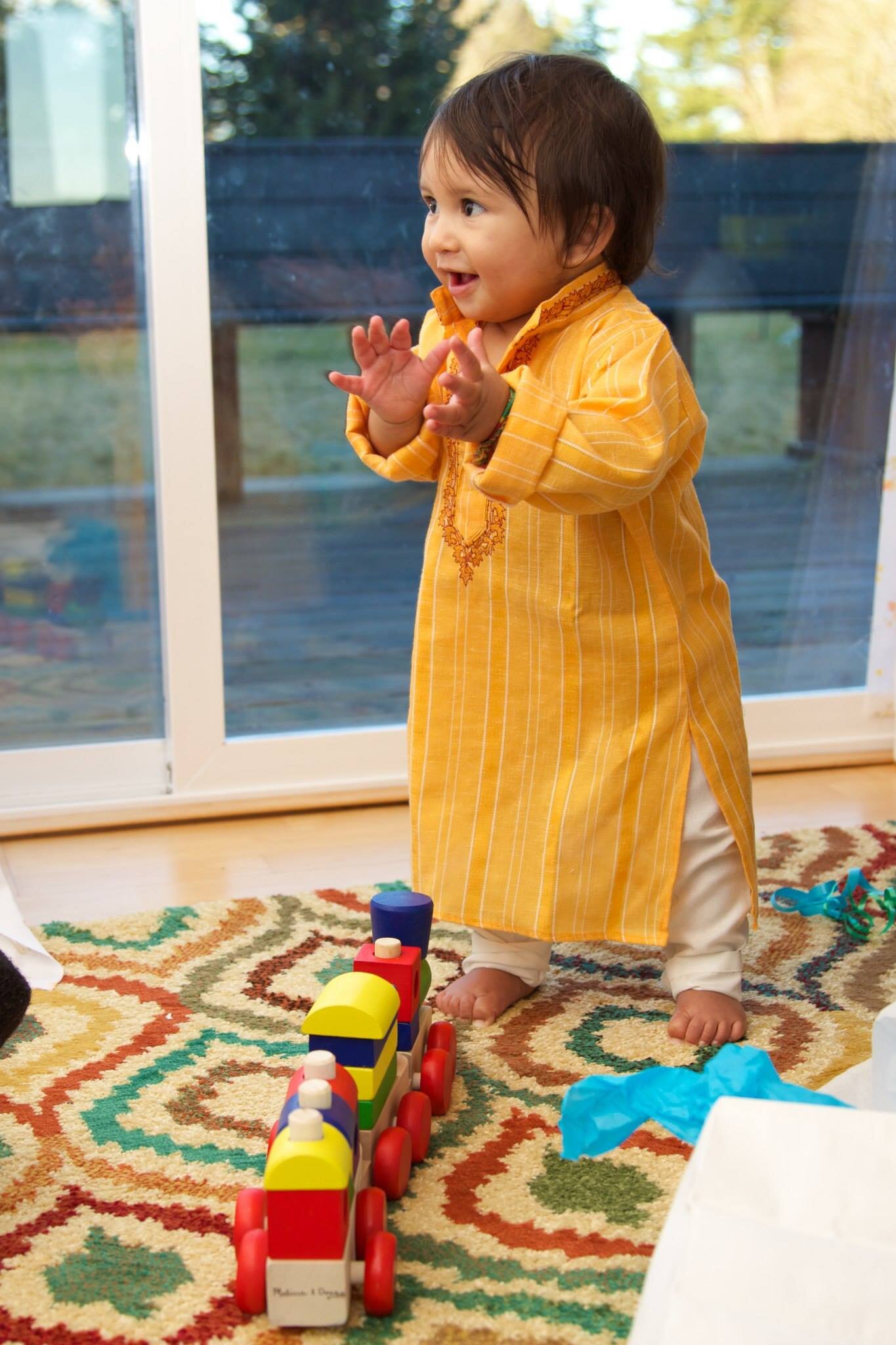 Encourage Your Kids To Teach Them About Their CultureMy kids love teaching people about their traditions and what better way to learn about something new than from a bunch of cute kids.When we eat Indian food in front of my family, my kids teach my family how to use their hands. They show them the correct technique and how they like to do it. They've even started to teach my family little Telugu words they know! It gives them a sense of pride to be able to share something that means so much to them.How have you helped your family to be comfortable with a new culture?
Encourage Your Kids To Teach Them About Their CultureMy kids love teaching people about their traditions and what better way to learn about something new than from a bunch of cute kids.When we eat Indian food in front of my family, my kids teach my family how to use their hands. They show them the correct technique and how they like to do it. They've even started to teach my family little Telugu words they know! It gives them a sense of pride to be able to share something that means so much to them.How have you helped your family to be comfortable with a new culture?
Multicultural Corner #2 Traveling To Thailand!
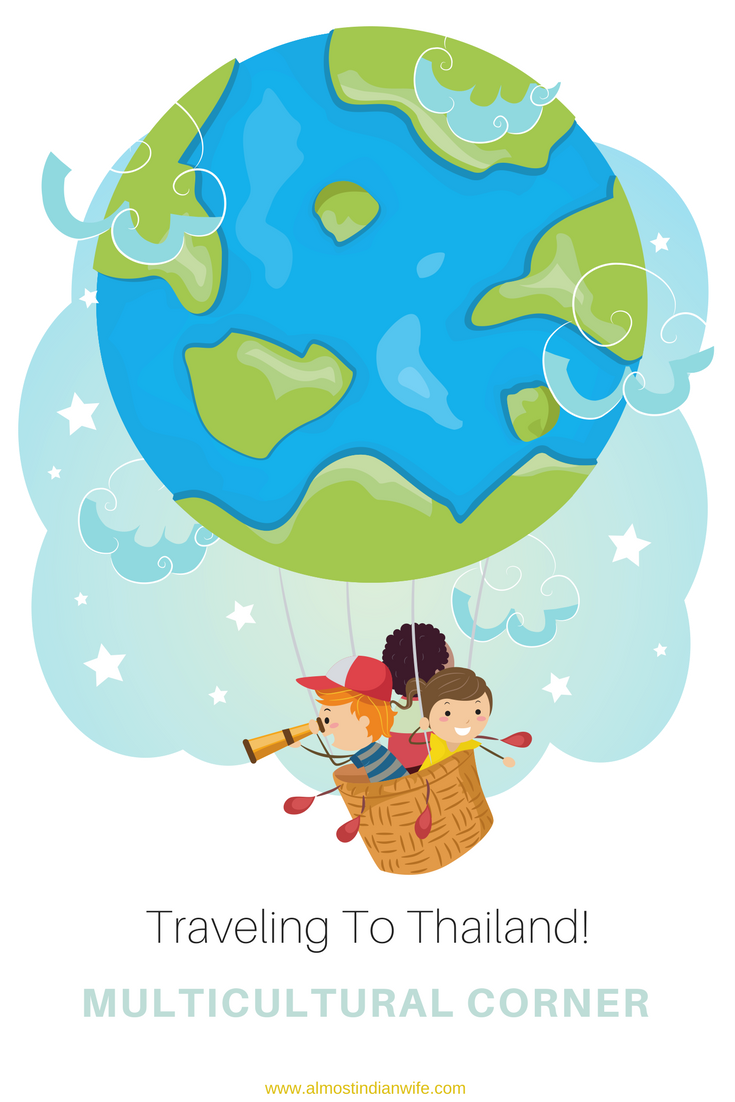
This post is brought to you by Saffron Road
The kids and I just completed our first year of homeschool! I was really worried it was going to be hard with all three kids, but it turned out really well.We quickly found a stride that worked for us and did most of our stuff outside. All three of my kids are hands-on learners, so we learned what we could at parks or in our backyard. Not to mention, the ability to wear them out while they learned was a huge plus!One of my favorite parts of teaching the kids from home has been our little multicultural corner. About once a month, we choose a new area of the world to learn about. We do it through fun books, games, crafts, and our very favorite... food!Indian culture has shown me how food can bring cultures together. It doesn't matter what your differences are. All you need to do is whip up a delicious meal and enjoy together. I also think it's a great way to teach kids about the world around them. They not only get to hear about a new culture, they get to explore it with their taste buds.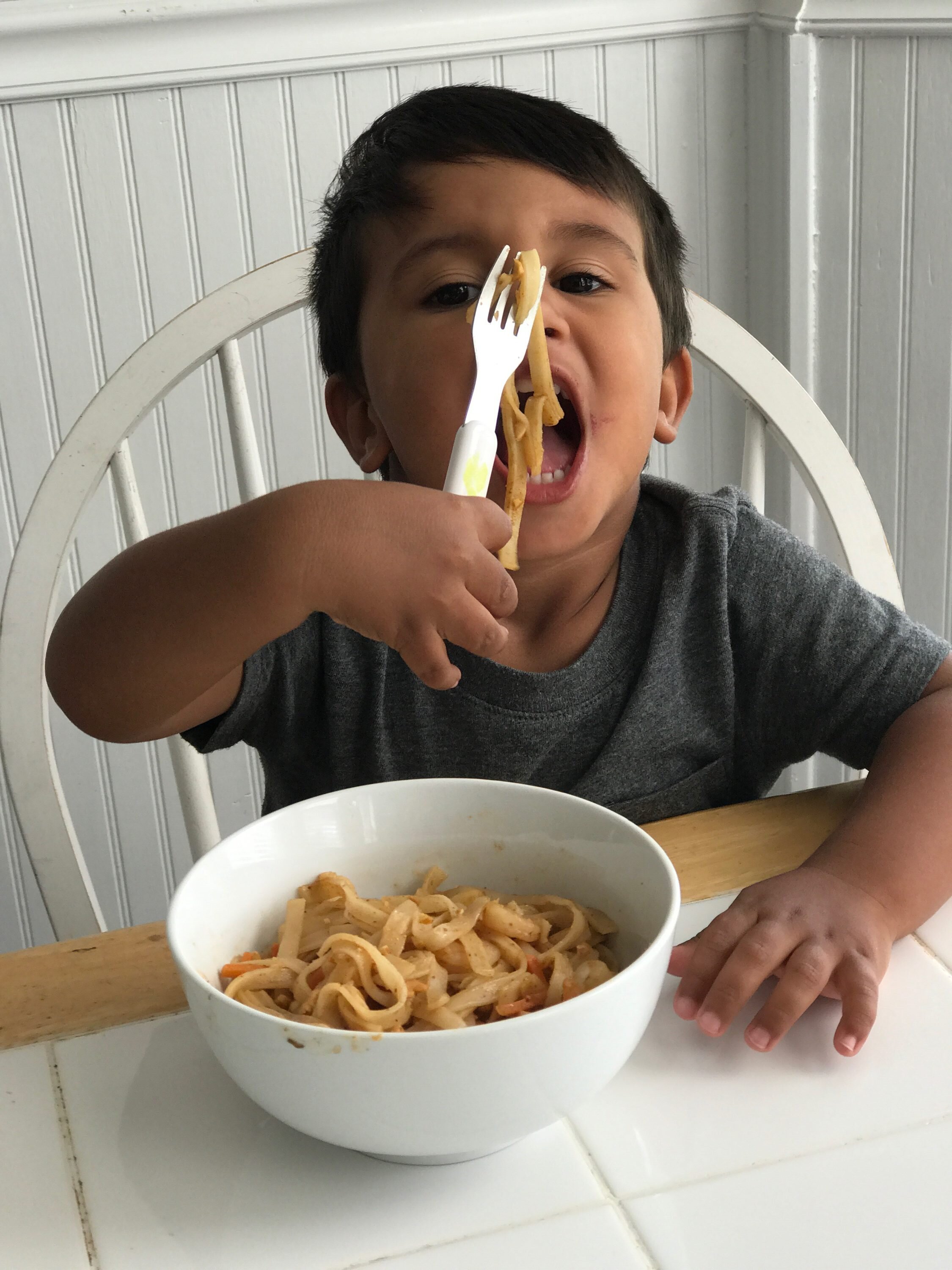
Where Are Our Taste Buds Taking Us To Today?
Even though the school year is over, my kids are dying to see the new culture we're going to explore! Today, our taste buds are taking us all the way to Thailand!I won't lie, I've been counting down the days until we could learn about Thailand! During our first year together, my husband and I spent most of our date nights at Thai restaurants.We both became completely obsessed with the food and loved the stories we would hear from the owners of the little restaurant. It ended up being a great fit for us because my husband could get his dishes Thai hot (burn your mouth off spicy) and I could get mine mild (white girl spicy)! It was perfect.I love being able to introduce my boys to Thai food because it brings back so many memories for my husband and I.Today, we whipped up some Pad Thai! Our house is filled with such a delicious smell. I had to fight my kids off just to be able to take a few pictures before they devoured their bowls!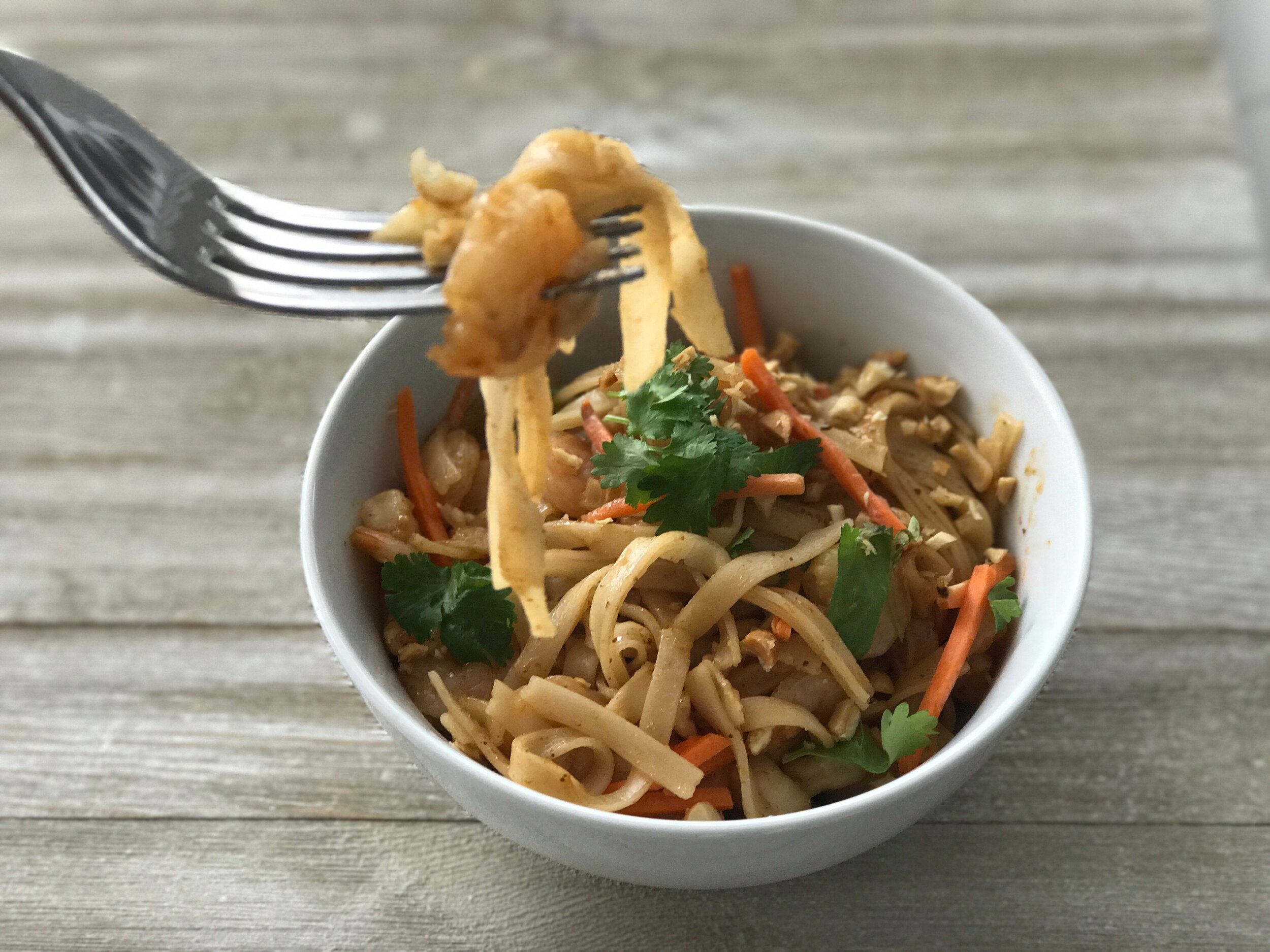 [amd-yrecipe-recipe:23]
[amd-yrecipe-recipe:23]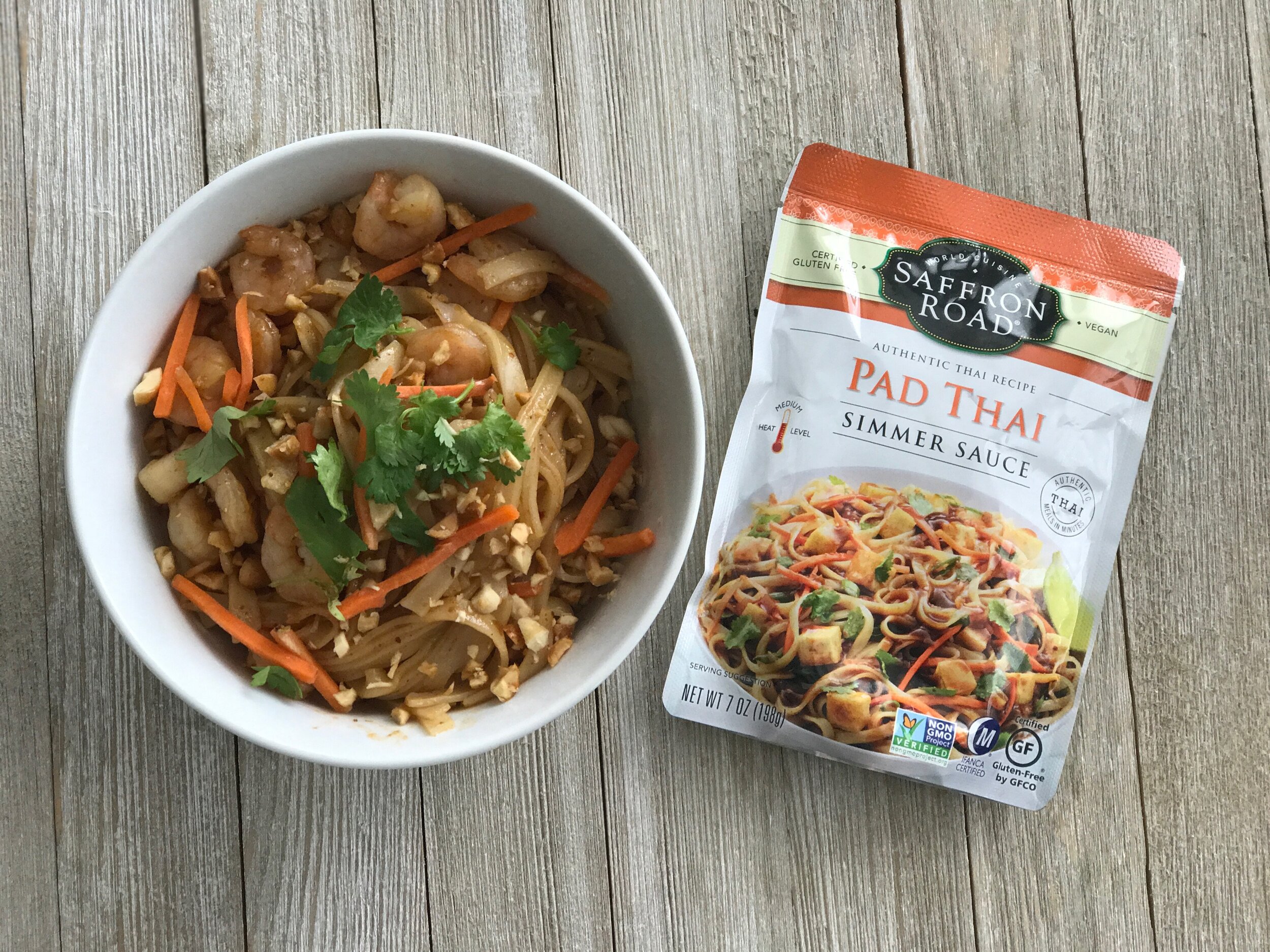
Today's multicultural corner is brought to you by Saffron Road!
I have fallen in love with their company because they have so many kinds of simple dishes!They have Indian freezer meals and their simmer sauces are to die for! This month we've already made their Mango Chicken and Pad Thai.I'm usually in a rush when it comes to dinner time so these quick dishes are just what we need! We can quickly whip up an international feast and my family is beyond happy!
Share Your Own Multicultural Corner Resources, Activities, and Recipes!
Leave one link and be sure to share it on Facebook, Twitter, or Pinterest!
Does It Make My Son Racist To Notice Different Skin Colors?
"Mom, look! He's black like daddy!"
This was what my 4 year old decided to yell as we walked through Target. The funny thing was that the man he was referring to looked at him and smiled, but a lady walking behind us was the one that gave Levi a double take. She wasn't mad necessarily, but you could tell it made her uncomfortable.My son is very visual, like most kids his age. When he retells me some of his adventures from the day, he tends to refer to children and adults by skin color. It's the descriptive words that his brain instantly recognizes."Can you get the black boys phone number so he can come and play?"In his mind, he's just describing his new friend like he would with any other adjectives.I've struggled over this one a bit. Everyone has such different opinions on what's acceptable, but at the end of the day, I had to make a decision for my kids.When my son was talking to me about his friend from the park, I responded by modeling different descriptors."Oh yeah, the kid with the orange shirt? He was really nice!"I don't correct him for using skin color as his descriptor, but I provide him with others as well. As a biracial child, I think it's important for him to realize we are who we are because of so many things. Our skin color doesn't define who we are, but it's one of many pieces of our identity.
Should We Raise Our Kids To Be Colorblind?
Another approach to this would be to raise our kids with a color blind mentality. It basically means you teach your kids not to see skin color.As a multiracial family, I can't see how that's healthy. My kids are being raised in two different cultures. Those cultures have influenced so many things about our family's identity and our daily decisions. If we were to teach our kids to stop seeing color, I feel like we'd be telling them to stop letting their Indian/American culture influence who they are.I've had people tell me I focus too much on my kid's culture rather than teaching them to simply be kids. I do it because I want my kids to be raised with a global mindset. If we're only teaching them about one culture we're ignoring all of the other amazing lessons they can learn from different cultures around the world.We currently attend a multiracial church and our pastor is always talking about being color blessed instead of color blind. I love it because it encourages us to embrace what makes us unique rather than ignore it.I want my kids to see the differences we all have so they also understand the unique part we all have to play in our diverse world.
The Real Problem
At the end of the day, the problem isn't kids using colors to describe people around them. The problem is when we make negative and hurtful statements about people based on the color of their skin.We are raising our children in a society that still struggles with racism and prejudice. As far as we've come from the days of Martin Luther Kind Jr. and the Lovings, we still have a ways to go.It's because of this that race becomes an uncomfortable conversation. People would rather be colorblind than talk about something that makes them feel awkward. In reality, I think a lot of parents are scared of saying the wrong thing.I've been there too! It's one thing to talk about race in the comfort of your own home, but it's a different story when it happens in public. You don't want to offend anyone, but you don't want them that talking about different races makes you feel weird.I've just started to break the uncomfortable barrier by asking questions. If I'm not sure what to say, I'll ask friends around me. By asking the question, they know you want to be respectful and you'll even learn a few things!I want my kids to do the same thing. I encourage them to learn more about people and to feel comfortable noticing what makes us all unique.
What Loving Day Means To My Multiracial Family

What Is Loving Day?
In 1967, the Supreme Court decided they would no longer prevent couples from marrying based on the color of their skin. This wasn't an easy decision in the 60's. Mildred and Richard Loving fought against a law they knew was wrong. After they were married, they were sentenced with one year in prison. They were madly in love and the state of Virginia didn't care. It only saw the color of their skin.The Lovings fought for their love and it's because of their perseverance and strength that multiracial families can proudly walk the streets together today.Every year on June 12th, we celebrate Loving Day to remember the Lovings and celebrate their victory, our victory. It's because of them that all couples can marry, regardless of their race.
Who Should Celebrate Loving Day?
Whether you are in an interracial marriage, have a multiracial family or not, Loving Day is for you too. It's not only for a select group of people. Loving Day stands for something bigger. It stands for racial justice and our right to marry the person we love.Without the Loving's fight, my husband and I would not be married. Our marriage would be illegal because of the color of our skin. Our children wouldn't be able to marry girls of a different race or ethnic background. The Lovings changed my life, my children's lives, and the world.Everyone should celebrate Loving Day because it affects all of us.
How Can You Celebrate Loving Day?
Find a Loving Day celebration.
There are Loving Day celebrations all over the US during this time of year. You can even go to the Loving Day website and look for your city. If you don't have one around you, start your own! Get your town into it and celebrate!
Celebrate at home.
Make a special dinner for your family and talk about the Lovings. Share their story with your spouse and/or children. Talk about the fight they had for us to marry who we love. You can even watch a movie all about it!
Spread awareness.
While the Lovings changed the world for our family, not everyone knows just how important they are. You can spread the word and share Loving Day with your friends.
What Loving Day Means For My MultiracialFamily.
While the Lovings stood against a law forbidding white and black citizens from marrying, it made a difference for my family too. My husband is East Indian and I'm white. The Lovings not only fought for their family, but for us.The Lovings fought so my husband and I could raise our kids in a world where love isn't defined by skin color.My children are young, but they know that Loving Day is important. It's because of this special day in history that my children don't know a world where mommy and daddy can't get married because of the color of their skin.
How Can You Spread Awareness For Loving Day Today?
Head over to Facebook, Twitter, and Instagram to share your story. Post a picture of your family, introduce yourself, and tell us what Loving Day means for your family. Head over to the Multiracial Motherhood Facebook Group and see how other multiracial families are celebrating!
Head over to the Multiracial Motherhood Facebook Group and see how other multiracial families are celebrating!
*This post contains affiliate links.*
My Gut Reaction To Hand Feeding
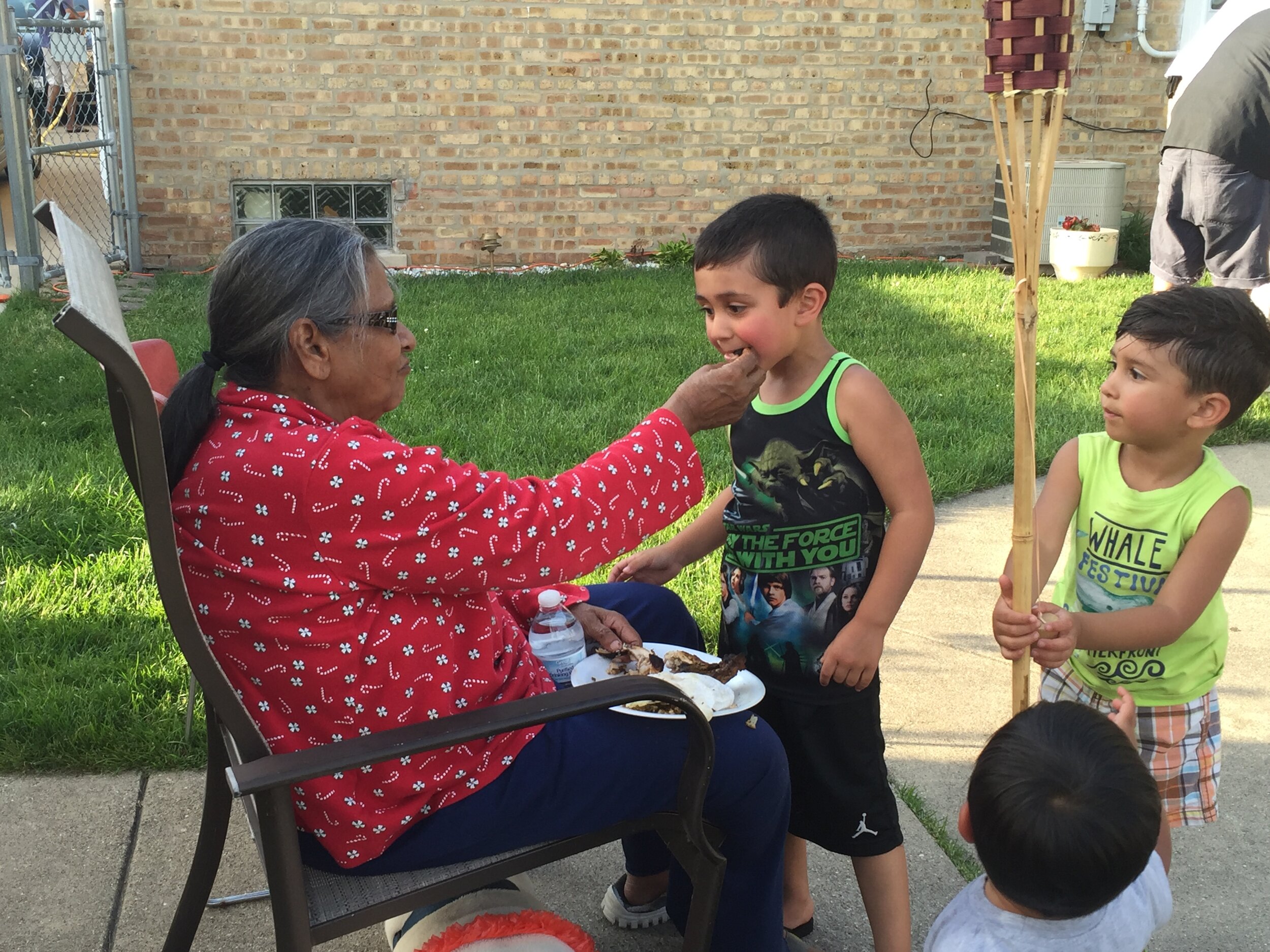
My Gut Reaction To Hand Feeding
When I first met my husband's family, I was so nervous that I didn't think about questions I should be asking him to prepare myself. I was just focused on not making a complete fool of myself!Luckily, his family is full of amazing people that made me feel comfortable right away. They even shared some cultural differences I may notice throughout our first week together. One of the first things they mentioned was that they ate Indian food with their hands.They showed the technique behind how to do it and I even ended up trying it out myself. I'll be honest, it took me a little bit to feel comfortable doing it in front of them consistently, but I learned. It became something I could do to show my husband (fiancé at the time) that I was eager to learn more about his culture and to embrace it.Over the years we've been together, it's become second nature to me. In fact, I can't remember the last time I ate Indian food with a utensil. The joke in Indian families is that food doesn't taste as good when using a utensil and I'm starting to agree!A meal isn't just about the food in Indian culture. It's about family and the love you have for each other.When my husband and I were engaged, we had a ceremony. During the evening, some of the older aunty's and uncles (older friends of the family) hand fed us sweets.At first, I was surprised and kept offering to do it myself. Then my husband gently nudged me and let me know it was part of the ceremony itself.This one took me longer to be comfortable with. The last time someone hand fed me, I was a little kid. In my mind, hand feeding was something parents did for their children who needed help. I had never seen it done in any other way.Fast forward a few years and I ran into an interesting situation with my 5-year-old, Liam. He is my child that wants to be big, now! He's not about this whole growing up business. He wants everyone to know he's mature for his age and doesn't need help. He's s spitting image of myself as a child.During one of our trips to visit my husband's family, one of Liam's Uthamas started to try and hand feed him. His instant reaction was to take it from her hand and do it himself. She offered a few more times and then stopped. My husband and I tried to explain it to him, but he wasn't having it.I'm not a baby, momma.This was the first moment I realized hand feeding was something bigger than I thought it was. It wasn't about an adult treating someone like a kid. It was about the special moment between two people who cared about each other.Uthama was hand feeding Liam because she loved him. It was just like snuggling on the couch for her. They were having a special bonding moment.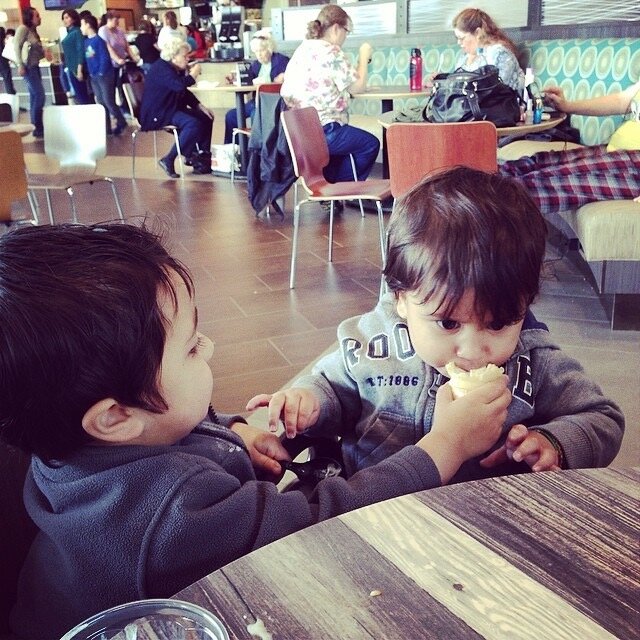 Over the years, my kids have responded to this differently. My two younger kids live for it. If they could be hand fed for every meal, they would! Liam is still a different story. He's becoming more comfortable with it, but in the back of his mind, he still pushes back.One thing we've done to try and help explain it to him is having him feed his uncle. My sister in law got married a little over a year ago. Her husband asked Liam to feed him some fruit on one of our trips. Liam started to laugh thinking he was being silly.Then he did it and it was such a special moment. He loves his uncle so much so for him I think it finally clicked in his mind. Obviously he could have fed himself, but he asked Liam to do it.Ever since then, he's been much more willing to have people hand feed him. He would still prefer to feed himself, but I don't notice him turning people down as much anymore. Now he just asks to feed them after!
Over the years, my kids have responded to this differently. My two younger kids live for it. If they could be hand fed for every meal, they would! Liam is still a different story. He's becoming more comfortable with it, but in the back of his mind, he still pushes back.One thing we've done to try and help explain it to him is having him feed his uncle. My sister in law got married a little over a year ago. Her husband asked Liam to feed him some fruit on one of our trips. Liam started to laugh thinking he was being silly.Then he did it and it was such a special moment. He loves his uncle so much so for him I think it finally clicked in his mind. Obviously he could have fed himself, but he asked Liam to do it.Ever since then, he's been much more willing to have people hand feed him. He would still prefer to feed himself, but I don't notice him turning people down as much anymore. Now he just asks to feed them after!
A Special Bond Between Brothers

How Do You Do It?
When people find out I have three boys under 6 years old, they immediately ask me, "How do you do it!" To be honest, most days are crazy. There are always little kids climbing on couches, fighting over toys, talking about bodily functions, and it gets messy.Real messy. Like Cheerios everywhere you can imagine kind of messy.However, there is one person that helps keep me sane every day, my five year old Liam. He is a rock star. He's definitely coming into a sassy I know everything phase, but he is always helping me. In our family, he is the Unna, which means the big brother.An Unna is a very special role in Indian families. They have the responsibility of looking out for their siblings and truly coming in as a little parent. For those of you that are the oldest in your family, you know what this looks like. Indian families take it a step further though. It's not just that they look out for their siblings, they truly have a place of authority in their siblings lives.I was introduced to this when I met my brother and sister in law for the first time. It was Thanksgiving and I was still getting to know my husband's family. We had been dating for a while at this point and knew it was serious. I was anxious to see what type of relationship my husband had with his siblings.I was the oldest of all my brothers so I had an idea what it looked like to have the responsibility on your shoulders. The more I watched them interact, the more I noticed something different. His siblings truly respected him and actually listened.I tell my brothers what to do all the time and usually they do what they want in the end. I'm sure I'd be the same way if the tables were turned.My brother and sister in law had a completely different relationship with their big brother. They valued what he said and went to him like they would to their own parents.
Passing Down Traditions To Our Boys
This was always something I wanted to pass on to my kids. I loved the idea behind it. It meant my kids would always be looking after each other and what mom doesn't want that.All three of my kids know and understands what it means to be an Unna. All three of them listen to their older brother and know it's their responsibility to take care of each other. Now, I'm not saying I let them parent each other while I lounge on the couch... As much as I'd love that!The relationship they have with each other is special. They rely on each other, love each other, and they're little partner's in crime everywhere they go.Out of all of the traditions we've passed down to the boys, this special bond is one of my favorites. I love the closeness it has brought all three of them.The funny thing is now they think all families are like ours. They assume they're unnas to everyone who is younger than this. This gets fun when we have play dates because they start bossing all the little kids around! Sometimes being an Unna is an excuse to be the boss.As they get older, they're going to learn more about what the role of an Unna means and I can't wait to watch them figure it out.
Living With Your In-Laws: The Good, The Bad, And The Ugly
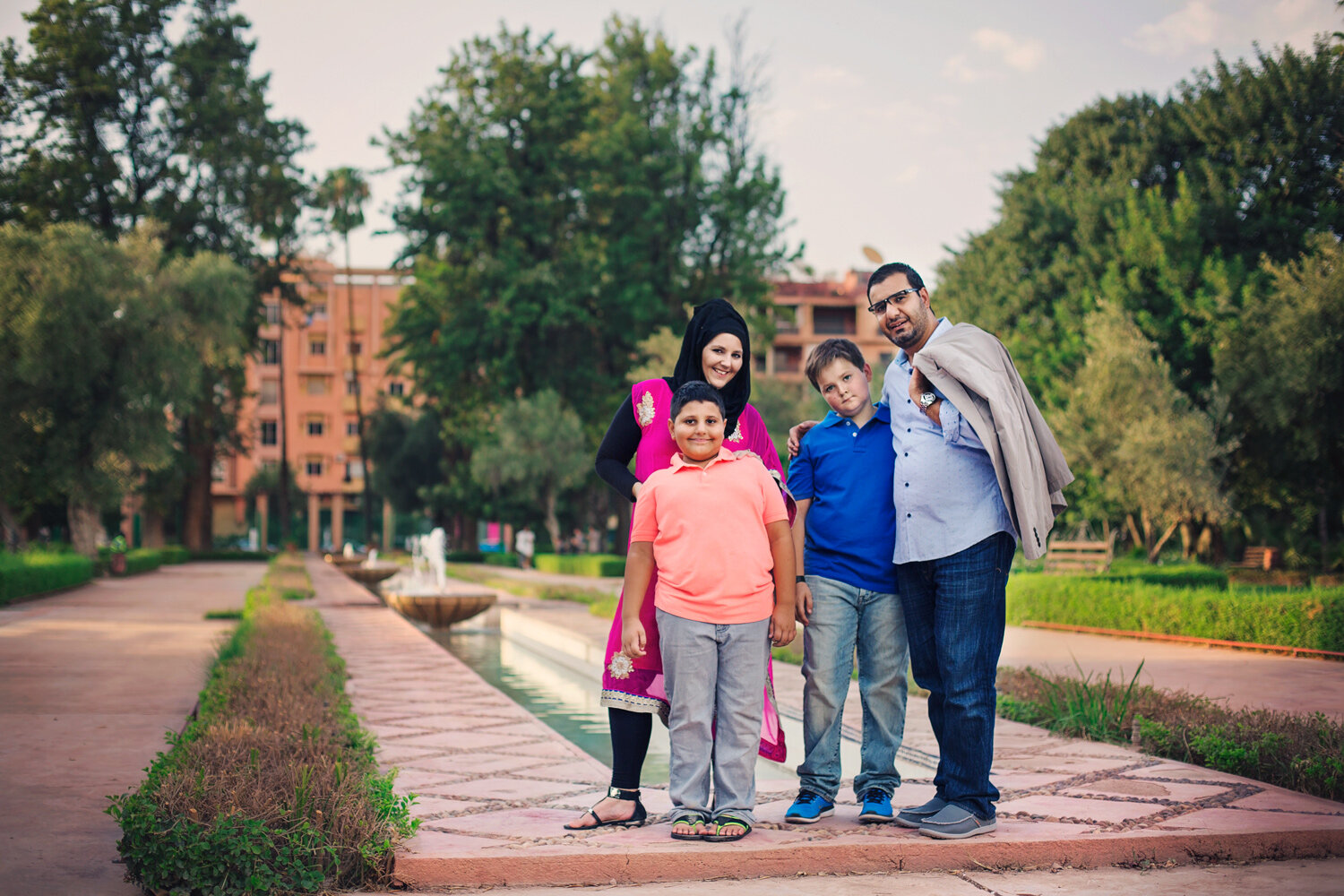 Have you ever wondered what it would look like to live with your in-laws? Maybe you already live in a joint family and need some advice. Today, we get to have a little peak into what it actually looks like from Amanda! Amanda is the blogger behind the website MarocMama, a fearless guide to food and travel. She lives in Marrakech, Morocco with her extended family and loves to share culinary experiences and unique destinations around the world with her readers.
Have you ever wondered what it would look like to live with your in-laws? Maybe you already live in a joint family and need some advice. Today, we get to have a little peak into what it actually looks like from Amanda! Amanda is the blogger behind the website MarocMama, a fearless guide to food and travel. She lives in Marrakech, Morocco with her extended family and loves to share culinary experiences and unique destinations around the world with her readers.
Living with Your In-laws: The Good, The Bad and the Ugly
Would you live with your in-laws? For many people who haven’t grown up in a culture where this practice is common it sounds like an absolute nightmare – and sometimes it is. Thirteen years ago I met and married my Moroccan husband. We lived in the US for many years until returning to Morocco four years ago. When we returned we moved into the family home.There are a lot of reasons extended families live in a single home and in Moroccan culture it’s as much to do with keeping the family together as it is practicality. When family members age they need to be cared for and this is done by their children. The reasons are also financial. In countries like Morocco it’s not always possible for a young couple to afford their own apartment or home.When we moved to Morocco, our first intention was to stay for only a year and to save money and make the move easier we opted to move into the family home. I had a few reservations but decided I could do just about anything for a year. While in some situations each family would have just their own room or two with shared common spaces, we had our own floor of the house with a private living room, bathroom, and kitchen. However, the house is laid out like a traditional Moroccan home – with an open center courtyard. All of the rooms on each floor face outward to this open middle space. So, while technically we had a private space it in actuality is semi-private.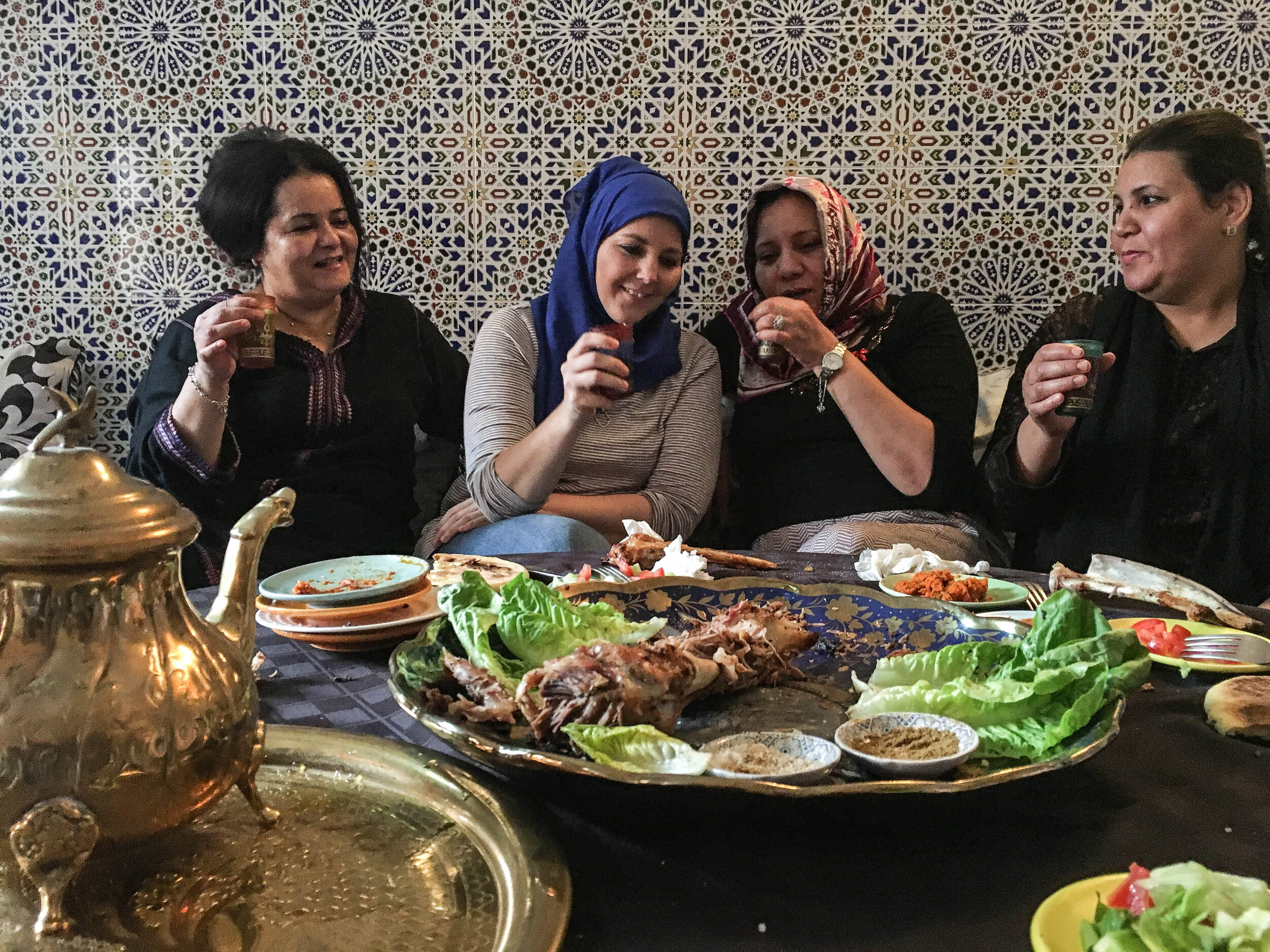
What is it like to live with your in-laws?
Hard. But, not every situation is the same. For me, someone that had lived alone since I was 18 years old it was incredibly strange to get used to having to contend with others around me. There were two major issues that were difficult to get used to. First, when there would be a noise disturbance in the US from a neighbor I could call the police, that doesn’t work here. Moroccans, and especially my in-laws, tend to be night people. They stay up until very late at night, every night with little regard for the amount of noise they are making. This was an issue was I am a big fan of routines and bedtimes for our kids who were six and eight when we moved. Four years later this remains an issue but it is better than it was in the beginning.The second issue was the lack of privacy. Thankfully our floor of the house is private but in the beginning family members would walk in without knocking at any time. It was also very common that they would take, and in some cases ask, for different things that we had. It could be a brush, a broom, or something from the kitchen. I’ve heard from others that their clothing or shoes would “go missing,” and end up being worn by a sister in law or niece that day.Communal living can be a huge mental drain. I am someone that really needs solitude and time away from people. I’m not anti-social but I need to “recharge.” It was hard for my mother in law to understand that just because I wasn’t sitting in the living room with them didn’t mean I didn’t like them, it just meant I valued my space. I also work from home and it took a VERY long time to explain what this was. Again, I wasn’t being anti-social but I was working.When you are a foreign spouse in a traditional family there is a desire to want to do what they expect you to do. I felt this in the beginning but my advice to anyone who is living with their in-laws or considering it is not to fall into this trap. You will lose your own identity and in the end regret it, especially when you realize you’ll never be able to meet their expectations. If I were a typical Moroccan daughter-in-law, I would have been expected to cook and clean around the entire house, not just my floor. In the beginning this was mentioned but I immediately pushed back. I would help but I didn’t move here to become the live in help. It is critical that you have a firm sense of who you are, what your values are, and what your goals are so that you can compromise accordingly.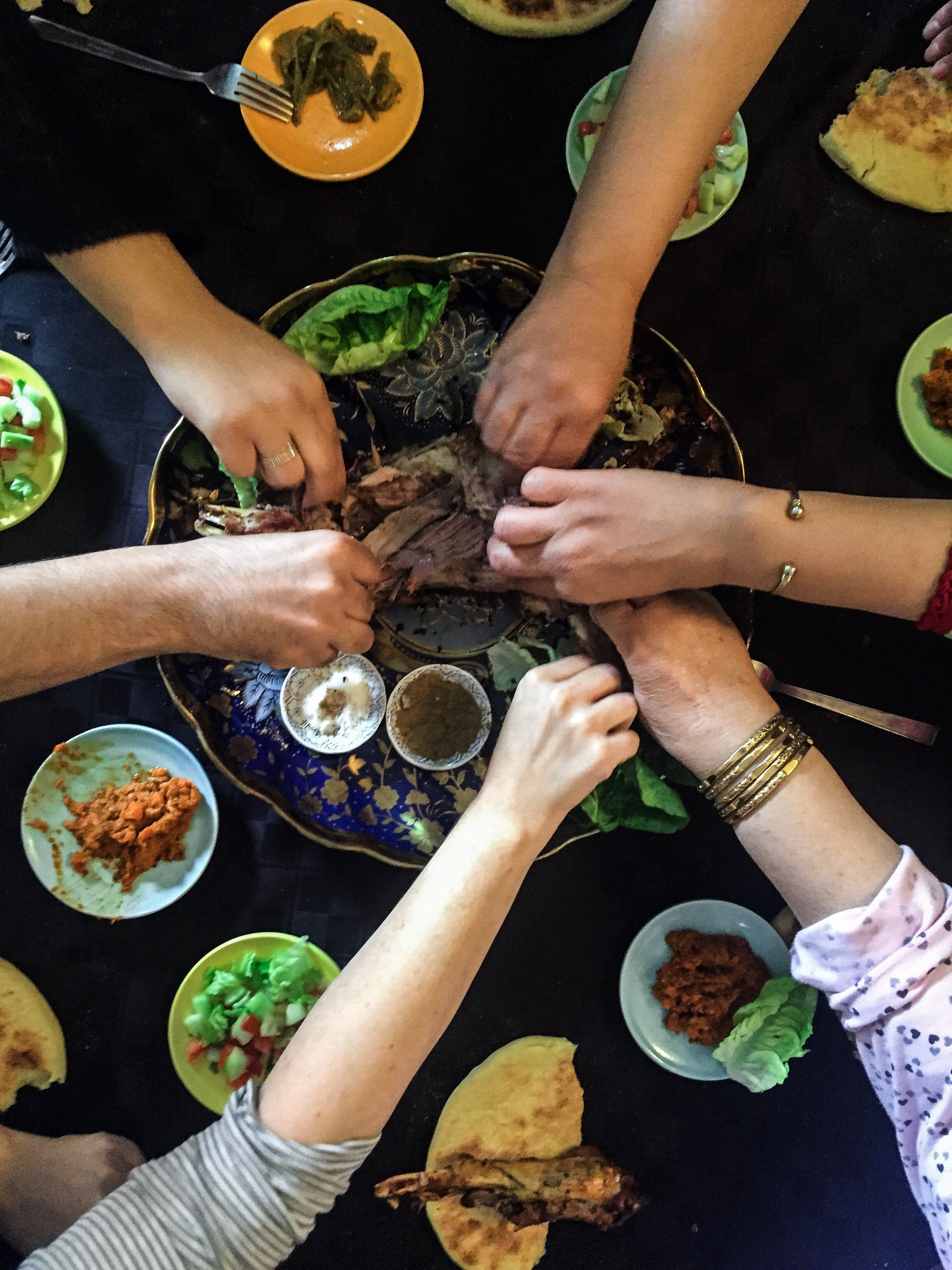
Are there any benefits to living with your in-laws?
I realize this all sounds very negative, but there are some benefits to living this way. One of the biggest advantages is that it can save a lot of money. If you’re on a tight budget or planning to relocate for a short period of time it can be ideal. Discuss with the family how your family will contribute; will you buy groceries, pay the electric bill, or something else? Living this way means shared responsibility in the household upkeep.The other advantage for us is that I travel a lot for work. My kids are able to always stay in their home without having to be uprooted from their house to go to grandma’s or their aunties house when mom and dad are gone or at work. There is always another adult around if they need something. No babysitters needed!Finally, even though it can be a huge strain living this way does bring a family closer together (it also drives you crazy but hey, that’s family!). My mother-in-law can come up and have lunch with us if she wants. We all can help each other when something is wrong and my kids always have playmates thanks to their cousins being right downstairs.I don’t think this style of living is for everyone and I do think it’s helpful to put a time limit on it. It can be very stressful for people who come from a culture where they are not used to living in such a way. If you do make this choice, put up your boundaries right away and stick to them, it will make life much easier for everyone. Be true to who you are and what your desires are because they will be challenged regularly. Finally, learn to accept the good with the bad and do whatever you can to make the bad a little more tolerable!
Follow Amanda's Journey
Multiracial Motherhood: Embracing Who You Are
Today, a very special momma is joining us to share about her multiracial motherhood journey. Meghan is the voice behind www.meghanjoyyancy.com where she shares about her multiracial family and talks about how you can find joy in living for today!

Photo Credit: Melissa LeeAnn
Meet Momma Meghan
Welcome to the life of our family of 7! My husband and I met years ago as he played college basketball with my big brother. So, he was the one dating his teammates sister. We dated for 4 short months before getting engaged and we had an 8 month engagement. Our wedding day was almost exactly 1 year from the day we started dating. We got pregnant with our honeymoon baby and about 10 months later, our first daughter was born. This summer we will be celebrating 9 years of marriage and we managed to pop out 5 kids under that age of 8 in those years. It’s been a whirlwind of a glorious adventure!My husbands’ entire family is from Liberia and although he was born in New York, his family is very traditional with their culture and lifestyle. My families heritage comes from Germany and Sweden so my kids love learning about all their of their lineage traditions. Being enriched in the culture of their own blood.
What is something you’ve learned through blending cultures in your family?
To grasp and experience everything we can with respect and gratitude. Beyond what countries our families hail from, but even in the way we operate, communicate and just do life. To be able to have understanding and grace in all aspects of blending family life is so important to healthy relationships. It’s not always easy to do, but it is something to strive for.I tend to be a VERY picky eater. I sometimes even have trouble eating some of the meat I cook myself. And because of this, I believe I have actually hurt my mother-in-loves feelings when she has cooked traditional Liberian meals. It’s not because of her food, but my own ridiculous eating habits that make for some fairly high-maintenance eating habits. At least I can admit that.But I have tried to make an effort over the years to at least TRY the traditional Liberian food. And if anything, I welcome with open arms her wonderful cooking for my husband to enjoy because it is comfort food for him. He grew up with it and so it feels like home for him. And I’m not intimidated or resentful of that. And I also want my kids to be mindful of the different foods and always be willing to try new things.
What is one struggle you’ve encountered?
The stereotypes.The stigma of a black man with a white woman.I will let you mind go where it goes in this. There are so many assumptions.Half-siblings.Gold-digging.Welfare.Foster Care.Control issues.Abusive.“He only likes white women”“She only likes black guys.”Whatever sterotypes you have heard or maybe even witnessed yourself, believe me, we have felt the affects of them. And not like we had anything to prove, but we definitely strive for greatness in all we do, despite the thoughts/words/actions that naturally come our way.
What advice would you share with other multicultural families?
Embrace exactly who you are. Every beautiful woven piece of unity you bring to the table, relish it. LOVE is born in exactly what you have and don’t let the world dull your shine.
Follow Meghan Along On Her Journey
What Can I Do If They Won't Speak My Language?
 Early on in an interracial relationship, one of the most uncomfortable moments is sitting in a room where everyone is talking in a different language around you. So many things start to go through your mind...Are they doing it because they don't like you?Are they talking about you?You start questioning their motive and whether or not they're welcoming you into the family. A few years, later you realize it's just a part of the game. Honestly, at some point they have talked about you, but most of the time they're just talking.It's different in every family. In my experience, my in laws speak in Telugu because it's comfortable and a part of who they are. It was the first language they learned so why wouldn't they speak it when they're together with their family?They don't do it the whole time I'm there, but I couldn't imagine asking them to speak in English when I'm around. That's just me and may be completely different for you.You may be married into a family where they do it out of spite... Maybe they truly aren't welcoming you in, don't speak in English at all, or they're just learning to be aware of the language when you walk into a room.Whatever they reason, most of us have been there. So, what do you do? What is your response in that moment?Instead of getting upset, I'm here to help you find a few different ways you can respond and maybe even get you to smile in that moment!
Early on in an interracial relationship, one of the most uncomfortable moments is sitting in a room where everyone is talking in a different language around you. So many things start to go through your mind...Are they doing it because they don't like you?Are they talking about you?You start questioning their motive and whether or not they're welcoming you into the family. A few years, later you realize it's just a part of the game. Honestly, at some point they have talked about you, but most of the time they're just talking.It's different in every family. In my experience, my in laws speak in Telugu because it's comfortable and a part of who they are. It was the first language they learned so why wouldn't they speak it when they're together with their family?They don't do it the whole time I'm there, but I couldn't imagine asking them to speak in English when I'm around. That's just me and may be completely different for you.You may be married into a family where they do it out of spite... Maybe they truly aren't welcoming you in, don't speak in English at all, or they're just learning to be aware of the language when you walk into a room.Whatever they reason, most of us have been there. So, what do you do? What is your response in that moment?Instead of getting upset, I'm here to help you find a few different ways you can respond and maybe even get you to smile in that moment!
6 Responses When You Have No Idea What's Being Said Around You
At the end of the day, you can't control what people do. The only thing you can do is choose how you respond to the situation. Here are a few ways you can respond and bring a smily to your face in the moment!
Smile and Nod
While they're talking in front of you, just smile and nod. Unless they're in a heated conversation then put on your best angry face! This is the "Let's hope it stops soon" situation. Most likely they'll start speaking in English soon so you just wait it out.
Laugh When Appropriate
Pretend like you're completely in the conversation. If everyone's laughing, start laughing with them! You'll nighter get their attention and they'll laugh with you or they'll stare at you wondering what you're laughing about. Then you let them wonder what you're thinking.
Secretly Learn The Language
This is my favorite. Secretly learn the language. Then you can sit there in those conversations, knowing exactly what they're saying. Wait for the best moment to finally catch them talking about you! Aha! I knew it! Then you can pull the most epic moment ever and respond to them in the same language!
Go Take A Nap
While they're talking, sneak away for a little r and r. Maybe they won't even notice, but at least you get a nap out of the situation. This was my go to response when I was pregnant with my kids.
Gentle Hints
Oh, what was that? I couldn't hear you. What did you say?After enough "gentle" hints they'll get the message and hopefully start including you in the conversation.
Have Your Husband Interpret
Let your husband be your covert spy. Have him interpret the conversation for you. Although let me warn you right now the jokes they make are never funny after being interpreted. They loose all humor in translation and you may regret having him interpret everything for you.
What is your go to response?
5 Things Multicultural Kids Love To Hear

5 Things Multicultural Kids Love To Hear
Multiracial kids are becoming more common every year. Something that was seen as such an abnormality is now becoming normal. Even though it’s becoming more normal, people are still trying to figure it out. Instead of keeping their questions to themselves, they tend to ask you questions that make you feel uncomfortable and remember how different your family is than theirs.The best is when people around you notice the positives about your multiracial family. Having a unique family and integrating multiple cultures into your family means your family has so many things that makes you special. Here are just a few things multicultural families love to hear.
1. You've traveled more than anyone I know!
One of the amazing things about being a child in a multicultural family is that they have family all over the world. Family vacations for them don't just mean a simple trip to Disney Land. Instead it means a two day flight to India!
2. You know how many languages!?
Raising a bilingual child is difficult and requires a lot of hard work. You have to be intentional every day to present them with multiple languages in a practical way. You also have to make it fun enough to encourage them so they want to learn multiple languages.Hearing how impressed someone is by their ability doesn't just make you as the parent feel good. It makes your child feel amazing! They take such pride in all of their hard work.
3. You look just like both of your parents!
Biracial children can feel ostracized by how different they look from their parents. They don't tend to hear time and time again how much they look like their mom. Instead people tend to be shocked when they find out who their parents are.Having someone come up and tell a biracial how much they do look like their parents makes them feel a strong sense of family unity.
4. You’ve integrated multiple cultures into your life so well! How did you do it?
Blending multiple cultures into one life requires hard work, patience, understanding, grace, and so much more. You question how well you do and what you could do better. When someone recognizes what a good gob you’re doing you can finally take a deep breath and pat yourself on the back.
5. You've taught me so much about your culture!
>Biracial children will inevitably face ignorance in their lives. They'll get asked rude questions and have people make incorrect snap judgements about them. The biggest thing they can do is to challenge ignorance by teaching people around them.When a biracial child hears how much they've been able to teach someone about their culture shows them they've been able to make a difference.
What is your favorite thing to hear as a parent of a multicultural parent?
Are Your Kids Represented In The Books They Read?

Are Your Kids Represented In The Books They Read?
I want to raise my children in a world full of diversity and a love for anyone different than them.
Growing up, I was always a book lover. I couldn't wait for my teachers to pass out the scholastic book fair catalogs because I would race home and beg my mom for as many books as she could afford. Then I would eagerly wait to bring the books home and hole up in my room and read them all!
My favorite part was seeing myself in the stories. I would open a book like Ramona and see a little girl just like me. It was a comforting feeling.
My husband is just as big of a reader as I am. The first thing we had to buy when we got married were five book cases. Yes, you read that right... Five large bookcases. We even had to get rid of a box or two of books because we had a lot of doubles!
Reading was a passion we definitely wanted our children to share. I started buying books as soon as the pregnancy test turned up positive.
I quickly realized how difficult it was to find books that would represent our multiracial family and our biracial children. I wanted my children to share the same feelings I did when reading their books.After talking about it with my husband, we quickly made the decision to hunt down books with multiracial families and children of color. We wanted to fill their rooms with stories of little boys just like them.
When kids read books, they want to identify with the characters. Most of the books they read are an inspiration to them. It may inspire them to be adventurous, to stand up against the bad guys in the world, or even to be who they are.
By seeing kids that look like them, they start to let go of the limits they've put on themselves. They start to believe that they can do anything they set their minds to. I want my kids to dream as big as their little minds let them.
Are you looking for books with multiracial families? Here are some of our favorites.
Mixed Me by Taye Diggs
Mixed Me is all about Max, a biracial little boy. He is constantly answering questions about being mixed race. He loves that he's a perfect mix of mommy and daddy.
I Am Mixed by Garcelle Beauvais
I Am Mixed is all about twins Jay and Nia discovering how great it is to be a blend of multiple cultures.
Mixed Blessing: A Children's Book About a Multi-Racial Family by Marsha Cosman
Young kids don't realize they're biracial right away. It takes them time to understand that they're different. This book walks with a child as he discovers he's different than mommy and daddy in a fun and creative way.
What I Like About Me by Allia Zobel Nolan
This book celebrates the diversity in our world. Instead of feeling bad about looking different than your friends, this book tells you how special we all are!
I Am Flippish by Leslie V Ryan
This book is all about Sean and his experience when his friends start to ask him why he doesn't look like his daddy.
Marisol McDonald Doesn't Match by Monica Brown
Marisol is beautiful and doesn't match. She is proud of being biracial and won't let anyone put her in a box.-----
Fill your house with books that will remind your children how special they are to be different. Do you have a favorite book about interracial families?
*I get a small commission when you purchase these books off Amazon. Whether you're looking into the books to support me or find your children some amazing books.. you can't lose!*
Letting Go Of Who Culture Says You Should Be

Letting Go Oh Who Culture Says You Should Be
About 4 years ago, I was sitting in my kitchen. I was feeling overwhelmed with all the pressure I had on my shoulders to be the perfect Indian wife.In all honesty, I was beating myself up. I was feeling crushed under the pressure to be the perfect Indian wife. It didn't matter what I did, I couldn't do anything Indian enough. I had been married for a few years at that point and I thought I'd have it figured out by then. Instead, I was just disappointed in myself. I was questioning if I'd ever be able to get there.
Would I ever be the perfect Indian wife?
Then it hit me.No.The answer was so simple, but the freedom I felt from saying it felt incredible.I would never be the perfect Indian wife because I'm not Indian. I may have teased that my tan skin during my wedding did, in fact, mean I was East Indian, but I wasn't.I married my husband, knowing he was East Indian and he married me knowing I wasn't. I was enough for him, so why was I pressuring myself to change?There are so many interracial couples out there doing exactly what I did. They're pressuring themselves to fit an image culture has created for someone else.Multiracial families break the mold when it comes to what it looks like to be a wife, girlfriend, husband, or boyfriend. There isn't one image that works for everyone because we're all blending cultures in our families differently.This is how The Almost Indian Wife was born. I knew I wouldn't ever be able to become the perfect Indian wife, so I asked myself who I was. This is a huge question for anyone.
Who am I?
Then it came to me. I was The Almost Indian Wife. Every time I say it, I smile. The Almost... It's a reminder to me that I'm my own person. While I love Indian culture and I'm always looking for ways to bring it into our family, I'm not Indian. I even tease my husband that we're the Almost Indian Family!The Almost Indian Wife isn't expected to do everything the Indian way. She isn't expected to be the perfect Indian parent. She's navigating between two beautiful cultures and making the rules for herself.Today, I want to take a moment to remind you that you're enough. You don't have to change yourself for your relationship. You don't have to be the perfect partner based on your partner's culture.
Your partner fell in love with you and not for an idea of what you would become.
Today, I welcome you to the Almost club. This club is full of people who pride themselves on being who they are. Don't worry we don't have any cheesy chants or songs (until I can think of one!). By joining, all you have to do tell yourself, I am enough.Your confidence will help you get through anything that comes your way. It took me a long time to be confident in being The Almost Indian Wife.In all honesty, I had to start walking it out before I felt it. Sometimes your feet need to tell the rest of the body what's going on. By walking out your confidence, even if it's not quite there, you're still making a commitment to yourself.You're committing to loving yourself whether you feel it or not.You're committing to being proud of who you are. Take a moment today and really think about the pressure you're putting on yourself, like I did. Then ask yourself that question. Who am I?
In the comments, tell me who you are. What defines YOU? Let all the pressure and expectation go. Who are you?
12 Things Interracial Couples Are Tired Of Hearing
12 Things Interracial Couples Hear All The Time
As an interracial couple, you're used to people asking you questions and maybe staring a bit. Sometimes people are curious and other times they're just enamored but what an adorable couple you are.The questions though.. They get a little crazy. They start off innocent and then just get... Well, you'll see.
1. You met online...?
2. Did your family approve?
3. Getting quizzed to see if the stereotypes are true
4. Racial jokes
5. Have you ever been attracted to your own race?
6. I would love having mixed kids! Can you help me find a (____)
7. Won't your kids be confused
8. I've dated someone who's ____ before
9. Is it uncomfortable getting both of your families together
10. Doesn't it feel weird being the only (___) at their family events
11. You're really progressive.
12. I love Kim Kardashian and Kanye!
What are you tired of hearing about your interracial relationship?
7 Multiracial Families You Should Follow!
The Almost Indian Wife
I love sharing my story with all of you on here. If you really want to see the nitty gritty of our multiracial family's day to day, be sure to follow us on Instagram. You'll see my boys mischievous little plans, what we're whipping up for dinner, hear fun stories, and get to know the family behind the blog.
Are Those Your Kids
Diedre is the glamorous girl behind Are Those Your Kids blog. She is a momma who seriously does it all! She helps her hubby on the farm, works as an educator, all while being the momma of two gorgeous little girls! Her Instagram is full of tips for curly hair, a glance at farm life, and all the fun in-between.
We're Parents
Larisha is the semi-crunchy mom behind We're Parents blog. Together with her fiancé, she is raising two beautiful little girls! Her Instagram is full of mouthwatering food, family adventures, baby wearing, breastfeeding, and authentic life moments. Her family is adorable and I love following their adventures!
De Su Mama
Vanessa is the beautiful momma behind De Su Mama blog. Her whole blog is about your multiracial motherhood legacy and what it looks like to be a multiracial family. Her family is always visiting fun places and I love seeing how they blend cultures and what it looks like to have a family legacy.
Cherish 365
Jennifer is the voice behind Cherish 365 blog formerly known as Baby Making Machine. She is truly a rockstar in her family. She has a little boy and a girl and her whole mission with her blog and Instagram is to cherish every day. She finds the beauty in every moment and it's truly inspiring.
Madh Mama
Alexandra is the voice behind Madh Mama blog. Her story is beautiful and I love following her along on her journey. She is raising two beyond gorgeous little girls while living in a joint family. I love seeing how her family embraces Indian culture together and what it looks like for them to be a multiracial family.
English Wife Indian Life
Lauren is the jet setting momma behind English Wife Indian Life blog. She fell in love with her husband and moved her entire life to India. Now they are raising a beautiful little boy together while she lives abroad. I love seeing her family on Instagram because she's showing how she keeps her culture alive while living so far from home. The beautiful thing is now India is her home!
